

Study at Cambridge
About the university, research at cambridge.
- Undergraduate courses
- Events and open days
- Fees and finance
- Postgraduate courses
- How to apply
- Postgraduate events
- Fees and funding
- International students
- Continuing education
- Executive and professional education
- Courses in education
- How the University and Colleges work
- Term dates and calendars
- Visiting the University
- Annual reports
- Equality and diversity
- A global university
- Public engagement
- Give to Cambridge
- For Cambridge students
- For our researchers
- Business and enterprise
- Colleges & departments
- Email & phone search
- Museums & collections
- Immigration
- International Students
- Applying overview
- Types of study
- Defining Cambridge
- A global community overview
- Fees and financial support
- Accommodation and residence
- Bringing your family
- Living in Cambridge
- Immigration overview
- Student visa overview
- Student visa - entry clearance overview
- Delays with visa application decision
- Student visa - entry clearance (EEA and Swiss nationals)
- Student visa - permission to stay
- Costs associated with applying for a student visa
- Student visa responsibilities overview
- Prior to and on arrival
- Collecting your BRP overview
- BRP validity until 31 December 2024
- Police Registration
- Changes in circumstances overview
- Changing your research degree
- Working on a student visa overview
- PhD - Internships and visa considerations
- Finishing your studies
- Time limit on study and academic progression
- Dependant visas
- Name and nationality changes
- Visas for pre-sessional courses
- Extending your visa as a current PhD student
- Visa Advice overview
- Conditions of Service
- Studying on other visas
- Studying part-time overview
- Short period of study
- Visiting students
- Undergraduate admissions interviews
- Graduate visa (post-study) overview
- Arriving overview
- Pre-arrival information
- Healthcare in the UK
- Costs associated with arrival
- Opening a bank account
- Prepare to study
- Support on arrival
- Studying overview
- Your student record
- Working and studying
- Other study opportunities
- More than just study
- Course completion
- Student visa
- Visa Advice
- Studying part-time
- Graduate visa (post-study)
Find information on how to apply to be a visiting student at Cambridge at Types of Study .
The information below is relevant to visiting students who are registered for a degree at another institution and attending Cambridge for a period of study or supervised research as part of their overseas degree.
Visiting for more than 6 months
If you intend to visit the University of Cambridge for a study period of greater than six months and have been accepted by a Faculty or Department, the appropriate visa is under the student route. The University holds a student sponsor licence which allows it to sponsor eligible students for a student visa. For visa sponsorship, the visit to Cambridge must be for the purpose of study or research that is part of your overseas qualification. This qualification must be at the same level as, or above, a UK degree. If you are not a registered student at another institution, visa sponsorship cannot be provided.
Certain courses will require you to obtain Academic Technology Approval Scheme clearance from the UK Foreign, Commonwealth and Development Office (FCDO) before a CAS can be issued for your student visa application . The requirement for ATAS clearance is determined by the CAH3 code of the course. Students who hold an EEA nationality or one of the following nationalities are exempt from this requirement: Australia, Canada, New Zealand, USA, Singapore, Japan, South Korea, Switzerland. An ATAS application has a processing time of 20 working days and a CAS cannot be issued until the FCDO have issued your certificate. Departmental staff intending to host visiting students can find further guidance on the International Student Office's ATAS process web pages.
Visiting for six months or less
If you are coming to Cambridge for less than six months, you will be able to do this as a visitor to the UK. Further information on coming to the UK as a visitor is outlined on our short period of study page . This includes information on the requirements and restrictions of coming to the UK as a visitor, and whether you need to apply for a visa in advance. Where the period as a visiting student is to undertake a short period of research at Cambridge, this must be as part of your degree course at your home institution to meet the immigration requirements. A letter from the home institution confirming that the study at Cambridge is part of, or relevant to, your course overseas is required.
Once accepted as a visiting student for a period under six months, your host Faculty or Department will provide a visa letter. Please note this is different to the acceptance letter you may receive from your supervisor or Department at Cambridge.
Visiting students undertaking postgraduate-level research in certain science and technology subjects will require an ATAS (Academic Technology Approval Scheme) clearance certificate to support either their visa application, if you are required to apply for a visitor visa in advance of arriving in the UK, or entry to the UK at immigration control. You will be informed as part of your acceptance as a visiting student if this applies to you. The UK Foreign and Commonwealth and Development Office (FCDO) manages ATAS. You must apply online to the FCDO and applications are normally decided within 20 working days. You will be sent the ATAS certificate via email and will need to print it out to support your visa application, or carry in your hand-luggage in case it is requested on entry to the UK at immigration control. Students who hold an EEA nationality or one of the following nationalities are exempt from this requirement: Australia, Canada, New Zealand, USA, Singapore, Japan, South Korea, Switzerland.
© 2024 University of Cambridge
- Contact the University
- Accessibility
- Freedom of information
- Privacy policy and cookies
- Statement on Modern Slavery
- Terms and conditions
- University A-Z
- Undergraduate
- Postgraduate
- Research news
- About research at Cambridge
- Spotlight on...
Museum of Archaeology and Anthropology
Two million years of human history, one million artefacts and countless amazing stories.
Today: 10:00am - 5:00pm
Accessibility
Baby Changing
Cambridge University Botanic Garden
The Botanic Garden is a treasure trove of over 8,000 plant species, including nine National Collections and a wonderful arboretum.
Today: 10:00am - 6:00pm
Museum of Classical Archaeology
Walk among the gods and heroes in one of the largest surviving collections of plaster casts of Greek and Roman statues in the world.
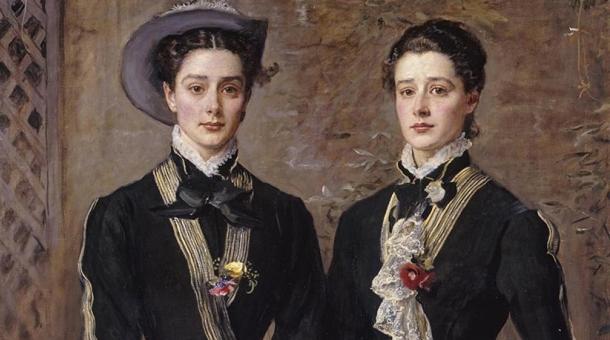
The Fitzwilliam Museum
Housing over half a million objects, the Fitzwilliam has an amazing variety of beautiful artefacts and art from around the world.

Kettle's Yard
Set in a beautiful and unique house, Kettle’s Yard is the University of Cambridge’s modern and contemporary art gallery.
Today: 11:00am - 5:00pm

The Polar Museum
Discover Polar adventure and exploration on your doorstep.
Today: 10:00am - 4:00pm

Sedgwick Museum of Earth Sciences
Take a stroll through the University’s oldest museum for a 4.4 billion year journey through time. Discover the building blocks of planets and take in…

Whipple Museum of the History of Science
Discover a vast array of scientific instruments dating from the Middle Ages to the present day.
Today: 12:30pm - 4:30pm

Museum of Zoology
The diversity of animal life is on display in the University Museum of Zoology’s brand new galleries.
Today: 10:00am - 4:30pm
Discover the stories that museums sometimes leave untold.
Collections in action
Museum shops.

Volunteering

Your privacy
We use cookies to help make our site work properly and to analyze how our site is used. You can view our cookies policy , manage your cookie preferences , or consent and dismiss this banner by clicking agree:
A Visitor’s Guide To Cambridge University
Thousands of visitors descend on Cambridge every year to see the University, and if you are going to join them you better know where to look. The age-old establishment is a marvellous mess of beautiful buildings and picturesque gardens, and finding your way around isn’t all that easy. We’ve picked out a few sites for you to discover while you stroll around the city’s cobbled streets.
By Charlie Walker | Updated Apr 19 2024
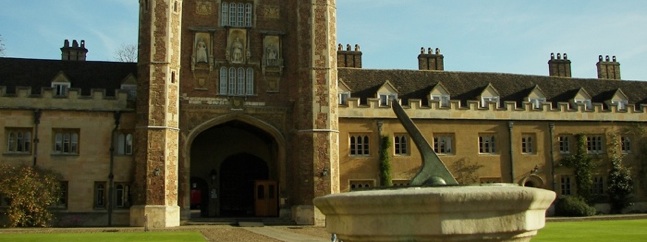
The Old Colleges
Cambridge is a collegiate university - which means its administration is split up into lots of smaller institutions (a bit like states in the US). Students eat, sleep and study in their respective colleges, and these structures form as much a part of their identity as the university itself. Many colleges are stunningly beautiful, with buildings dating back as far as six hundred years.
Of the old colleges, there are a few you must visit. Kings College is the poster-child for Cambridge University: it's breathtaking chapel features in every other postcard of the city. The building was first commissioned by Henry VI in 1441, and became the standard-bearer for grand Gothic architecture. There is no other building like it in the world, and has to be the first spot on your list to tick off. Just down the road is Trinity College . Prince Charles famously attended Trinity - and the city’s tour guides will gleefully tell you about his less than perfect results. Other notable alumni of the college include Lord Byron, Isaac Newton and Eddie Redmayne. The college’s grounds include a network of amazing gardens and quadrangles, and the impressive Great Gate, containing a statue of Trinity’s founder Henry VIII.
Other must-visits include St. Johns , a 16th century college that connects both sides of the River Cam with the Bridge of Sighs, a replica of its namesake in Venice. There is also Clare College , another riverside spot with gorgeously composed gardens; and Jesus College , a Tudor era estate constructed on the grounds of a Benedictine nunnery.

Photo Credit: Mark Skipper
Hidden Gems
Cambridge isn’t just about the old and traditional. There are plenty of newer colleges that are well worth discovering. Robinson College , perched to the west of the city centre, was founded in 1981 and is now one of Cambridge's largest colleges. The red brick façade isn’t to everyone’s liking, but behind the college is its luscious gardens that offer a little bit of wilderness for you to explore. In a similar vein, Girton College has become a hipster spot for Cambridge tourists. The institution isn’t the most popular with applicants due to its location, a good 20-minute cycle out from town. This rural positioning, however, offers Girton’s grounds lots of space for playing fields, orchards and plotted walks - a quaint idle if you can make the trek. Finally, Churchill College offers a very modern kind of paradise. The college’s sixties block architecture folds out onto rolling playing fields, and lots of little squares emerge between the different teaching rooms and accommodation blocks - perfect for a picnic in the sun.

Photo Credit: John Lord
Non-Collegiate Buildings
Cambridge University isn’t all about colleges. There are plenty of faculty buildings, museums and libraries that are worth your visit. One of the central teaching sites for the humanities is the Sidgwick site . This modern complex houses the English, Music, Classics and History faculties in a series of elaborate glass structures. The central quad is surrounded by a raised library, and hosts displays of modern art and sculpture.
Nearby is the Cambridge University Library . This gargantuan brick structure is a copyright library, meaning it receives one copy of every book published in the UK. As you can imagine, it’s big. Visitors are rarely granted access to the library itself. You can, however, visit their regular exhibitions held in the building’s entrance area. Also worth exploring is the Cambridge Botanical Gardens , an exquisite collection of plants and horticulture. The grounds feature numerous themed zones, and the ever-popular glasshouses simulate environments from tropical rainforests to Oceanic islands. Look out for the Botanical’s events in the summer: there are regular concerts and educational evenings hosted in the gardens.

Photo Credit: Yakinoda
There we are - all you need to know for exploring Cambridge University. Don’t be afraid to venture from our guide: every corner of Cambridge houses something weird and wonderful!

Cambridge Travel Guide (including tips, itinerary + map)
By: Author Tracy Collins
Posted on Last updated: August 6, 2024
Our Cambridge Travel Guide includes recommended places to visit and things to do, accommodation options, tips and more for one of the most famous university cities in the world. Everything you need to plan your visit and essential reading for any visitor to Cambridge!
- Plan your visit to Cambridge
Located 55 miles north of London is the city of Cambridge. Home to one of the world’s most famous and prestigious universities this ancient seat of learning, and historic city, is smaller and more compact than Oxford.
Spend the day exploring some of its 31 architecturally stunning colleges and famous museums, or take to the river for a spot of punting.
Read on for Cambridge travel tips and advice to help you plan your visit.
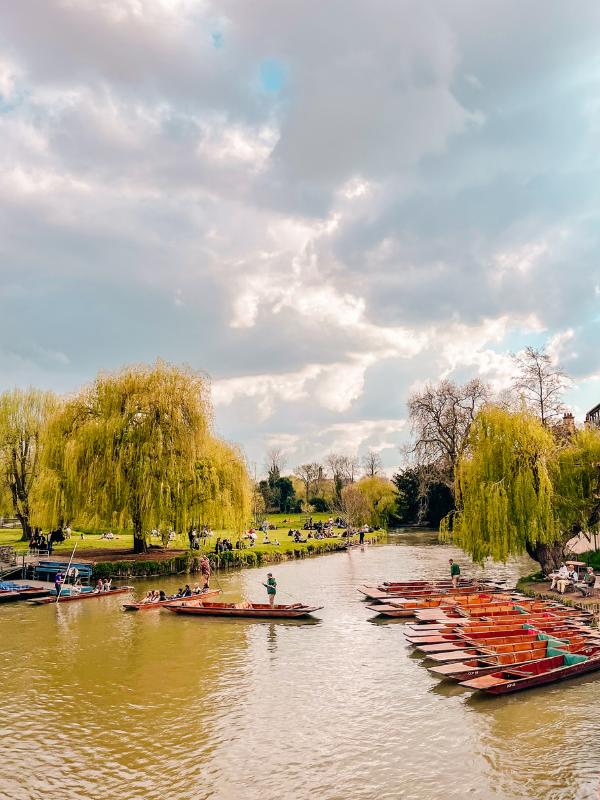
What you will find in this complete Cambridge Travel Guide
🏆 Top 3 tours in Cambridge
Map of cambridge, when is the best time of year to visit cambridge, how many days do you need in cambridge, what is the best way to explore cambridge, which city should i visit – oxford or cambridge, by train from london, by car from london, take a tour from london to cambridge, attractions and things to do in cambridge, centennial hotel, additional accommodation options in cambridge, tickets, tours & attractions in cambridge, where to eat in cambridge, books to read before visiting cambridge, enjoy your visit to cambridge.
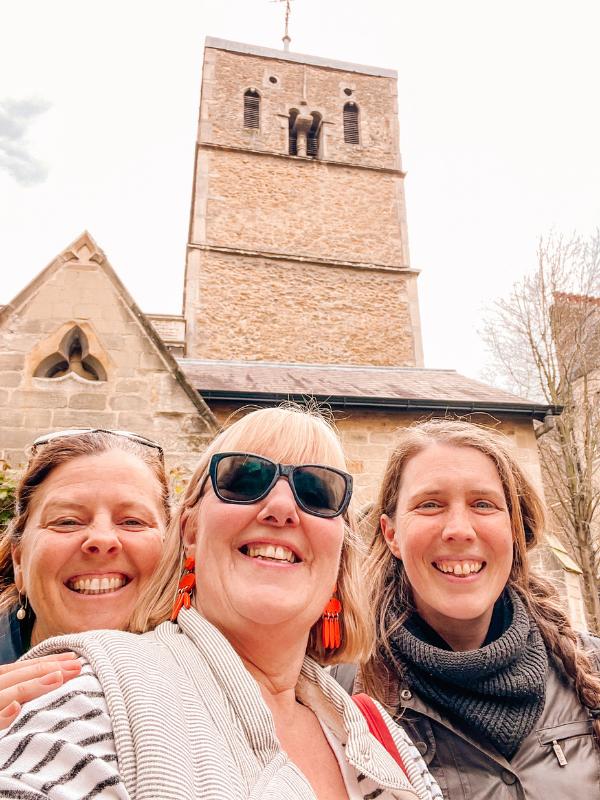
- Cambridge walking tour with optional access to King’s College Chapel
- Cambridge guided punting tour
- Cambridge historic walking tour
Cambridge travel guide – Visiting Cambridge FAQ’s
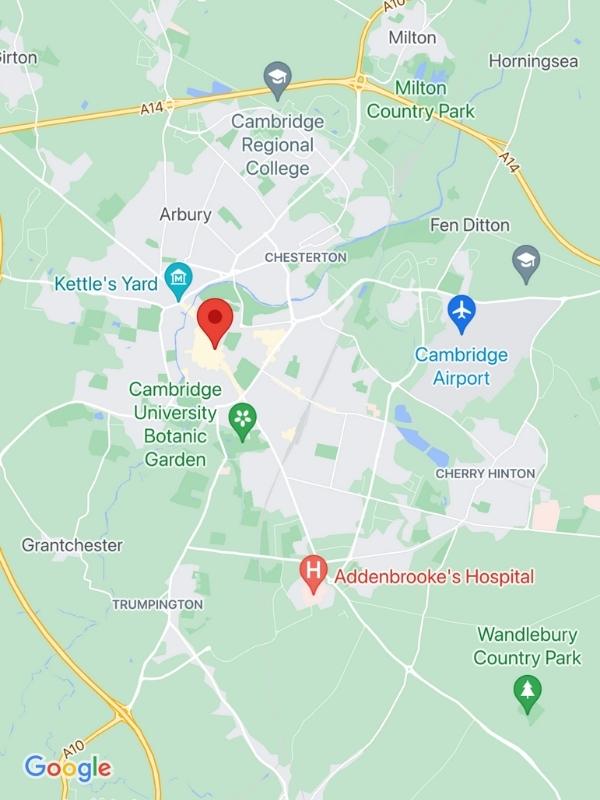
Cambridge is one of England’s most beautiful cities and a fantastic destination, no matter what time of year you plan to visit.
During the summer, Cambridge is the perfect destination to try punting. Look at the river and enjoy views of the bridges and university buildings as you meander.
Cambridge is one of the UK’s driest cities, so with luck, you should have a pleasant and dry day whatever time of year you choose to visit.
The Cambridge Folk Festival, the biggest folk festival in Europe, is held annually from June to July.
Cambridge’s main sights and attractions can be seen in a day, making it the perfect day trip from London .
The city’s main attractions and sights are within easy walking distance, making Cambridge a great destination for exploring on foot.
To make the most of your visit, we recommend joining a guided wa lking tour ( I recommend taking a tour which includes access to King’s College Chapel)
Both cities have their unique charms and are worth a visit.
Cambridge is a smaller city than Oxford. There is less to do and see but it is a beautiful and easy city to explore in a day.
Oxford is the larger city and has lots of things to see and do so could easily fill 2 days if you wish to explore all its colleges and museums. It is also the perfect destination to visit if you are considering a road trip to the Cotswolds.
If you are a Harry Potter fan head to Oxford where you will find several film locations used in a number of the movies.
Read more about visiting Oxford in my Oxford Travel Guide .
As I have mentioned, both cities are doable for day trips from London by train. If you only have one day and want to see both cities take this Oxford & Cambridge Day Tour from London.
What is the best way to travel to Cambridge from London?
For timetables and tickets we recommend the trainline . Take the train to Cambridge for the day or incorporate it into your UK train travel itinerary.
Tip – If this is your first time catching a train in the UK read our complete guide to UK train travel ebook which includes all the information you need to know to make travelling around the UK by rail a relaxing and stress-free experience.
- Distance from London: 55 miles
- Time taken by train: 50 minutes to 1 hour 50, depending on the route
- London St Pancras International to Cambridge is the quickest route.
Cambridge is 55 miles from London and takes over an hour and 30 minutes to reach by car. Unless you are planning to visit from London and head to other destinations in the UK, we recommend taking the train!
If you do plan to drive to Cambridge, parking is expensive, so we recommend using the Park and Ride scheme . There are five locations around the city where you can park your car and catch a bus .
🚙 Considering a road trip around Scotland? Not sure if you’re up to driving in the UK? We recommend using a Tripiamo guide to familiarise yourself with it before your journey. Previous UK Travel Planning users have said this has made them feel much more comfortable getting behind the wheel. Find out more in our guide to renting a car in the UK 🚗
We recommend these day tours to Cambridge from Get Your Guide.
- City and University Tour including King’s College – Visit the iconic landmarks of Cambridge University and enter the famous King’s College Chapel. Enjoy a walking tour with a Cambridge University student and see the world behind the institution’s closed doors.
- Exclusive Chauffeur: London to Cambridge and Woburn Abbey – Enjoy the luxury and comfort of your own private chauffeur whisking you out of London to beautiful Cambridge and Woburn Abbey. Discover the beauty of the English countryside on this exclusive private tour.
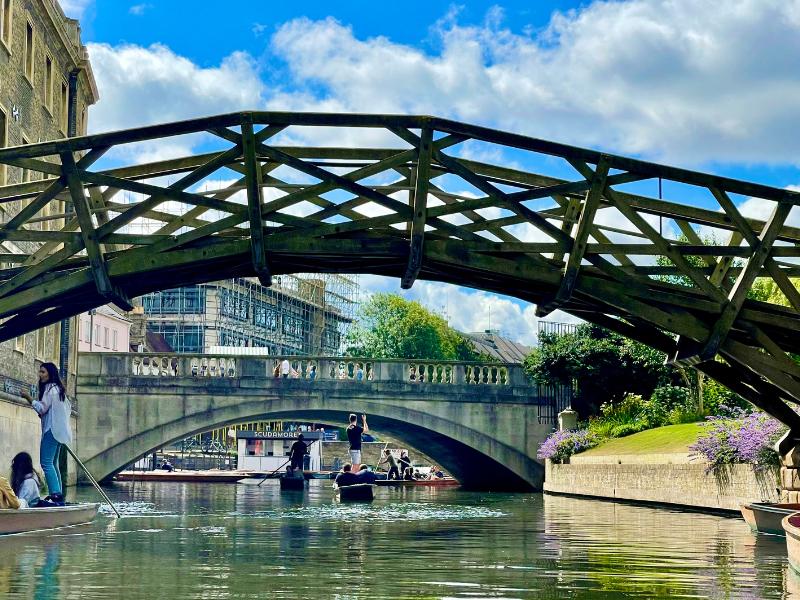
One Day in Cambridge Itinerary (coming soon) with information about the best things to do in Cambridge and an itinerary for your day, including visiting the Fitzwilliam Museum, going for a punt on the River Cam, exploring Cambridge’s Colleges (each an architectural marvel) such as St John’s King’s College and much more!
Accommodation in Cambridge
We have stayed in Cambridge twice over the past few years to spend additional time exploring this beautiful English city. As we were travelling by train, we chose the Centennial Hotel located near the train station (which gave us the option of catching the bus to the centre or a 20-minute walk)
Located near Cambridge Railway Station and opposite the University Botanic Gardens, the recently refurbished Centennial Hotel is a budget-friendly option with historic charm.
This comfortable hotel is conveniently located a 15-minute walk from the University Colleges and city centre hotspots and is on bus routes.
Book the Centennial Hotel
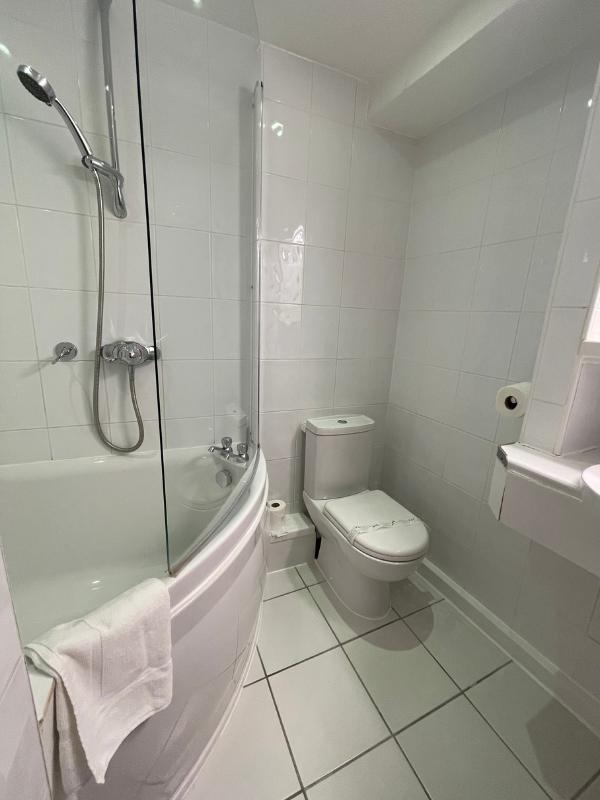
- Gonville Hotel >> 4 star | 5-minute walk from the historic centre | 2 restaurants
- Westminster College >> Centrally located | Free WiFi | Private parking
- Hotel du Vin Cambridge >> Grade II Listed | 5-minute walk from city centre | French bistro
- University Arms, Cambridge >> Central location | 192 rooms & suites | Parker’s Tavern
- ibis Cambridge Central Station >> 24-hour front desk | On-site coffee shop | Near attractions
🏨 Find more special stays in our Accommodation Guide for England.
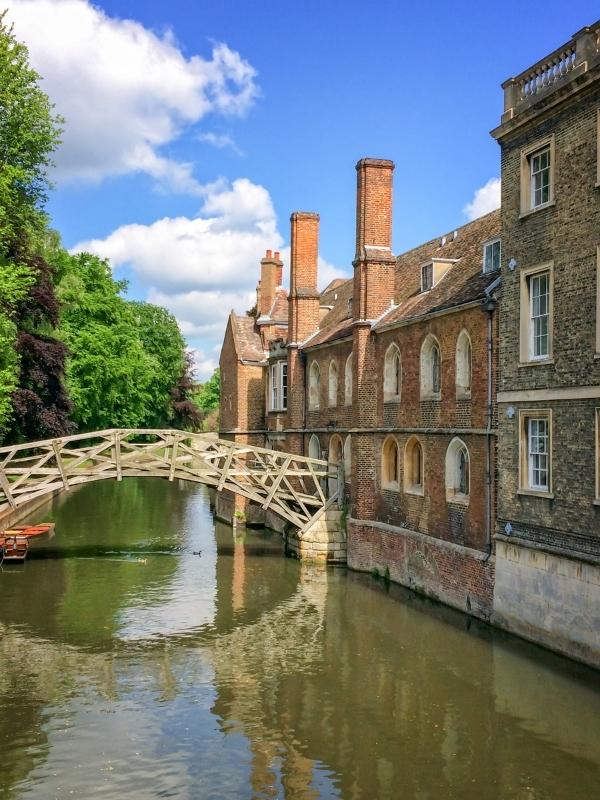
There are numerous walking tours (and punting tours) available in Cambridge.
- University Punting and Walking Tour – Discover the beauty of Cambridge on a combined 90-minute walking tour and 50-minute punting cruise along the River Cam.
- Guided Walking Tour of Historic Cambridge – Take a two hour guided tour of historic Cambridge with an accredited Cambridge Green Badge guide. The fun and family-friendly tour will show you the city’s stunning buildings and tell you about its many famous names.
- Cambridge University Guided Walking Tour with a Graduate – Get an insight into life at one of the world’s most elite universities on a 1.5-hour historical walking tour of Cambridge University with a graduate guide. Visit some of the most famous colleges, such as Clare College and Trinity College.
Two recommendations (you can find more in our itinerary planners), but we had a fabulous Sunday roast at the Cambridge Chophouse. And a visit to Cambridge is not complete without a drink and a meal at the Eagle Pub! (see below why this historic pub is a must!)
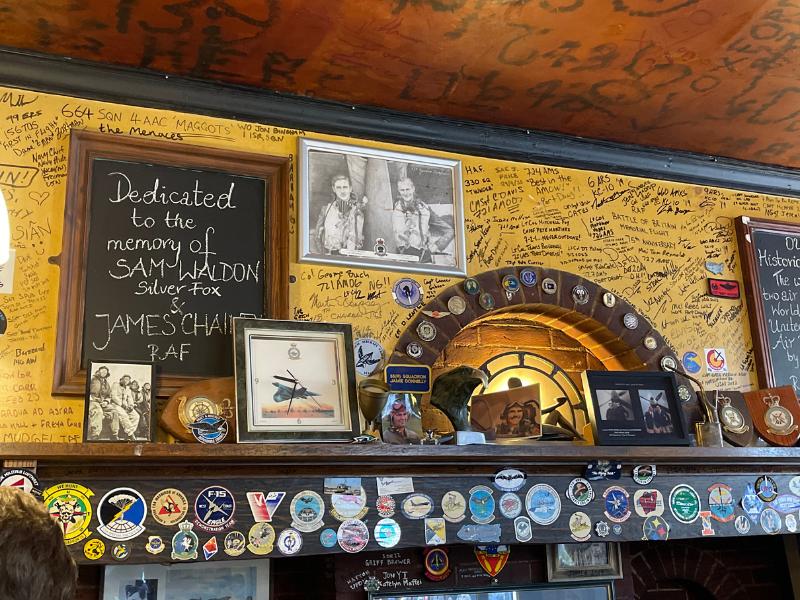
Cambridge is proud of its literary heritage and connections with famous authors who have studied or taught at one of its colleges. We recommend reading some of their works to fully appreciate and enjoy your visit to Cambridge.
These include
- William Wordsworth
- Sylvia Plath
- E.M.Forster
- Zadie Smith
- Sebastian Faulks
- Stephen Fry
- Salman Rushdie
- Margaret Drabble
- Joanne Harris
- Nick Hornby
You will find more inspiration and ideas to help plan your travels around England in these travel guides:
- Devon Travel Guide (including tips, itinerary + map)
- Liverpool Travel Guide (including tips, itinerary & map)
- York Travel Guide (including essential travel tips, itinerary + map)
- Peak District Travel Guide
- Lake District Travel Guide
- 10 virtual tours of famous landmarks in the UK
Looking for more inspiration for your travels in England? Check out my England Travel Planning Guide which has lots of ideas, tips and resources to plan your itinerary.

Cambridge Travel Tips
Last Updated: September 6, 2024
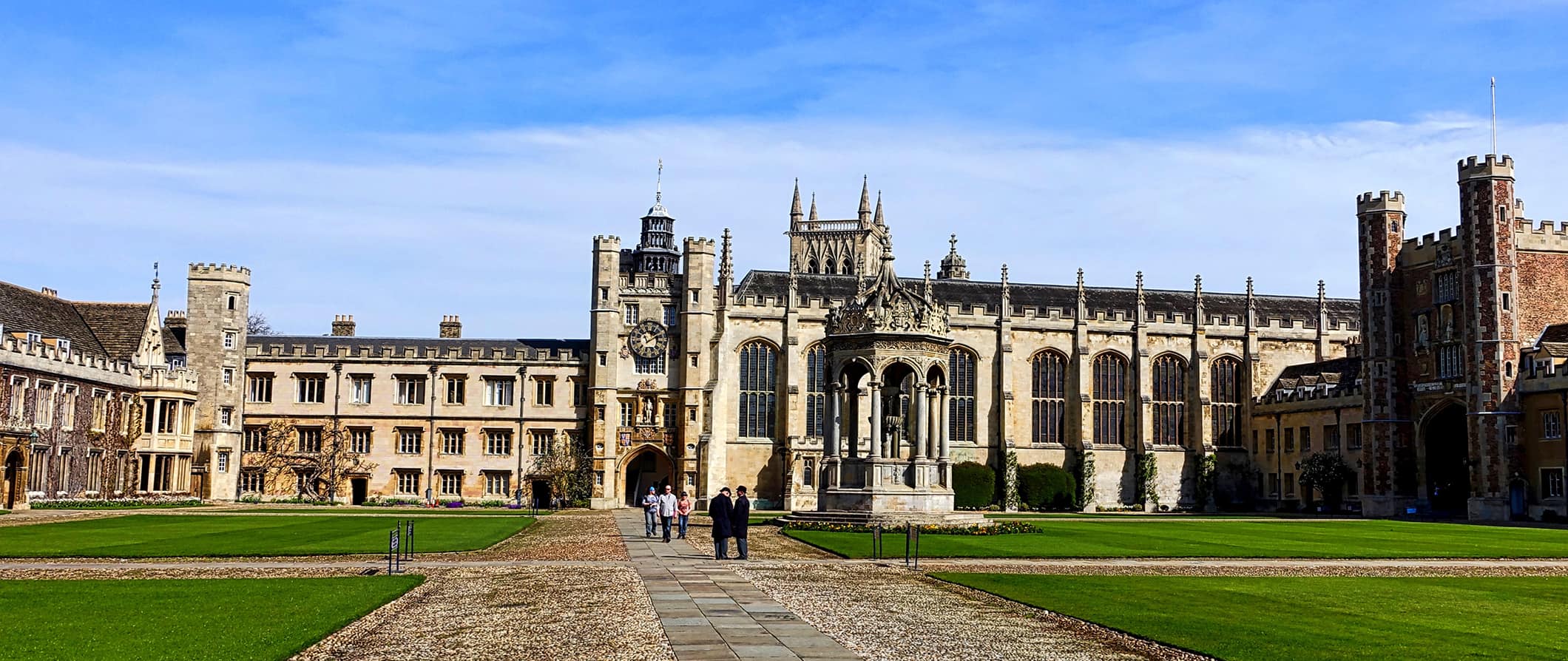
Cambridge is an iconic English city home to some of the country’s best universities, parks, museums, and theatrical productions. It’s a lively small city with a young student population that keeps things affordable.
Like Oxford , life here revolves around the university, but there are many other things to do here as well. I enjoyed the museums, wandering around the parks, and embracing the relaxed pace of life (there are only around 125,000 people here compared to the almost 10 million in London!).
Since Cambridge is just a few hours from London , the city is a popular day-trip destination, however, I enjoyed it enough that I would recommend it for at least a night since there’s so much to do here.
This Cambridge travel guide can help you plan your visit to this fun, beautiful, and historic destination.
Table of Contents
- Things to See and Do
- How to Stay Safe
- Where to Stay
- Typical Costs
- Suggested Budget
- Money-Saving Tips
- How to Get Around
- Best Places to Book Your Trip
Click Here for City Guides
Top 5 things to see and do in cambridge.
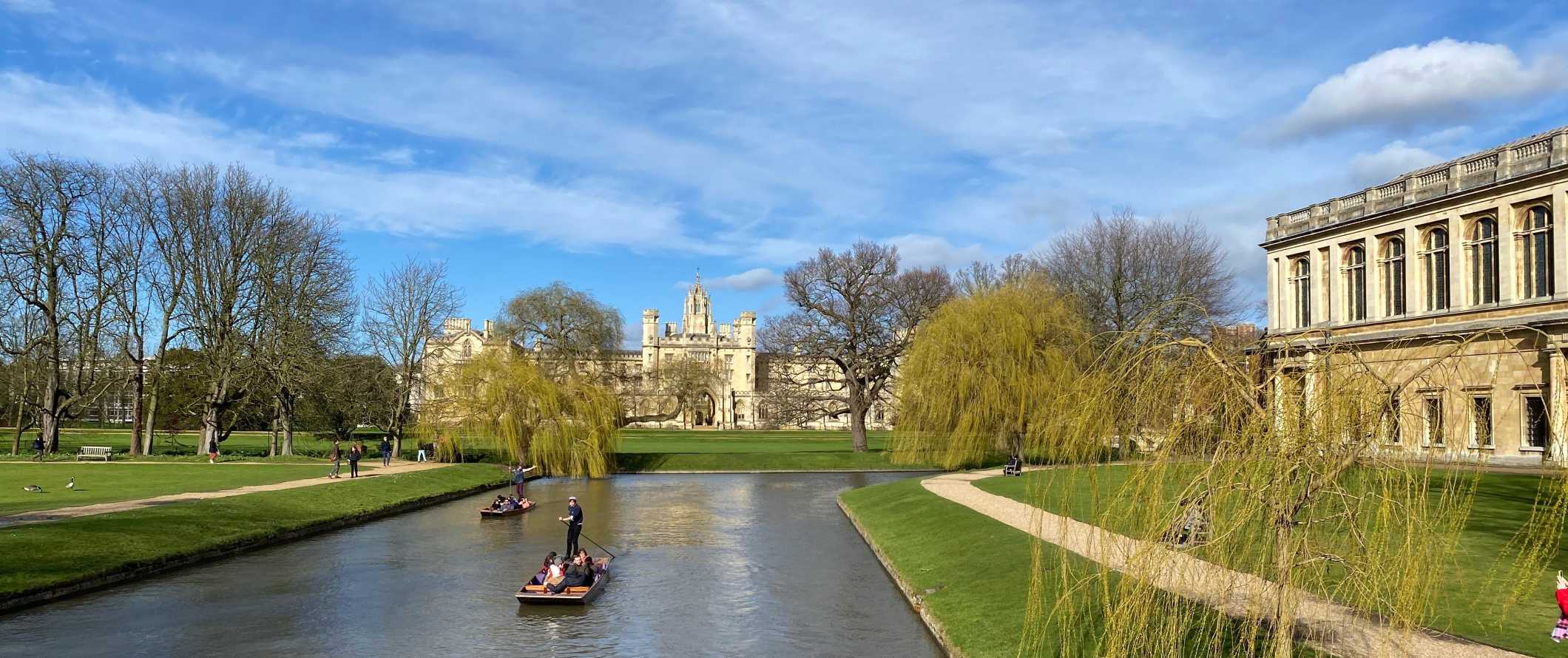
1. Visit the colleges
Founded in 1209, Cambridge University is an architectural marvel made up of 31 colleges. The school’s Kings and Queens Colleges have the most beautiful buildings, while Corpus Christi, St. Johns, and Trinity have iconic, stunning quads. Pembroke has buildings from every century since its foundation in 1347, while Newnham College has stunning gardens and gorgeous architecture. Spend some time wandering the university.
2. Visit the Fitzwilliam Museum
Founded in 1816, the Fitzwilliam Museum is the art and antiquities museum of the University of Cambridge. It has more than half a million works of art, including masterpiece paintings and historical artifacts, with origins ranging from ancient Egyptian, Greek, and Roman antiquities to modern-day art. Some highlights include masterpieces by Rembrandt, Rubens, Gainsborough, Constable, Monet, Degas, Renoir, Cézanne, and Picasso. Admission is free.
3. Visit Great St. Mary’s Church
This university church is home to some of the best-preserved English architecture in the country. Constructed in the 15th century, this Late Gothic church offers excellent panoramic views of the city from its bell tower at the top of 123 steps. Admission is free and the bell tower costs 6 GBP. The award-winning Michaelhouse Café located inside the medieval chapel within the church offers breakfast and lunch 7 days a week.
4. Go punting and see the Backs
Punting is a classic Cambridge sport that involves pushing a wooden boat with a pole (instead of rowing with oars). Punting is the only way to see the Cambridge Backs, a picturesque area along the River Cam named for the view of the (literal) backs of the nearby colleges (Magdalene, St John’s, Trinity, Trinity Hall, Clare, King’s, and Queens’). Punting along the tranquil, tree-lined river is also the best way to take in the sights of some of Cambridge’s most famous landmarks such as King’s College Chapel, The Wren Library at Trinity College, and the Bridge of Sighs. Guided tours start at 20 GBP but can be as much as 100 GBP depending on the type of tour and season. Make sure you only book with a licensed operator. Renting your own boat costs around 20-35 GBP.
5. Shop at Cambridge’s market square
Since the Middle Ages, vendors have been selling their wares at Cambridge’s market square in the center of town. Open daily from 10am-4pm, you can find everything from second-hand clothing and bikes to cheap eats and local produce. Even if you don’t purchase anything, walking the aisles is a nice way to spend some time taking in the city and people-watching.
Other Things to See and Do in Cambridge
1. take a free walking tour.
Cambridge is a great place to walk around for a few hours, admiring the beauty of the parks, river, and old historic buildings. A free walking tour is the best way to get the lay of the land and see the main sights (it’s how I start all my visits to a new city). Footprints Walking Tours has the best free walking tour in the city. It lasts a couple of hours and includes all the main highlights. Just be sure to tip your guide at the end!
2. Visit the Botanical Garden of Cambridge University
For a quiet afternoon, head to the Botanical Gardens. John Stevens Henslow, the mentor to Charles Darwin, created the gardens for research purposes in 1831. Today, the gardens boast over 8,000 plant species from around the world. Hang out in the Woodland Garden and Lake, or visit the Glasshouse Range, a series of buildings with themed environments, including deserts and tropical rainforests. The Winter and Autumn Gardens are seasonal glasshouses that are especially colorful during the right months! Admission is 7.50 GBP.
3. Attend a lecture
It’s possible to attend one of the university’s lectures if you plan ahead by looking at the list of public talks on the university’s website. They have lectures on everything from molecular science to the global learning crisis to archaeological mysteries. Talks are usually free and operate on a first-come, first-serve basis.
4. See a show at the ADC Theatre
To take in the local art scene, attend an amateur performance at the ADC (Amateur Dramatic Club) Theatre. The university’s playhouse is entirely student-run, offering productions by students and other local theatrical groups. In operation since 1855, ADC is the oldest university playhouse in the country and has been the launching point for the careers of countless famous actors and comedians. Tickets are 7-16 GBP depending on the show and day of the week.
5. Attend the Cambridge Shakespeare Festival
Every summer over the course of six weeks, more than 25,000 people gather to see different Shakespeare plays performed in the gardens of the various colleges. Arrive early as the good spots fill up quickly (there are only 200 seats on a first-come, first-served basis). There’s also a picnic area if you want to bring a blanket and a snack to enjoy before the performance. Tickets are 18 GBP per performance.
6. Watch a rowing race
Cambridge is renowned for its rowing club. All colleges have their own clubs, which compete with one another in regular races. Besides punting, this is the most popular activity in town. Watch a race from the river’s edge or grab a pint and sit outside at the riverside pub, The Plough to cheer on the athletes.
7. Visit Anglesey Abbey
Less than 7 miles (11 kilometers) outside of Cambridge, Anglesey Abbey is a stunning Jacobean country house with colorful gardens and a working watermill. Originally built in 1600 (but extensively remodeled in the early 1900s), the interior consists of medieval vaulting, 17th-century paneling, and rooms full of antique furniture and books. Two of the main highlights are the pair of Tudor royal portraits, including the earliest likeness of Henry VIII. In the early spring, a carpet of white snowdrops blooms across the 100 acres of gardens, making for a scenic stroll. You can tour the watermill, the house, and the grounds for 15 GBP.
8. Tour Wren Library
While at Trinity College, be sure to stop at the Wren Library to see its impressive collection of 55,000 books — all of which were published before 1820. A.A. Milne’s original Winnie the Pooh is here as Milne and his son, Christopher Robin, were graduates from Cambridge. Named for famous architect Christopher Wren (whose masterpiece is St. Paul’s Cathedral in London), the building was completed in 1695 and is an important piece of history itself. Visiting is free, though it is currently closed to tourists due to COVID.
9. Explore the Polar Museum
If you’re interested in learning about the world’s earliest explorers, visit the Polar Museum (part of the Scott Polar Research Institute). It was founded in 1920 as a memorial to explorer Captain Robert Falcon Scott, who famously died with his team in 1912 on his return trip from the South Pole. There are photographs, archival videos, ship models, drawings, paintings, and even the last letters written by Scott during his final journey. It’s free to visit.
For more information on specific cities in England, check out these guides:
- Bath Travel Guide
- Brighton Travel Guide
- Bristol Travel Guide
- Liverpool Travel Guide
- London Travel Guide
- Manchester Travel Guide
- Oxford Travel Guide
How to Stay Safe in Cambridge
Cambridge is one of the safest cities in the UK. But like anywhere, it’s good to keep your wits around you — especially after a fun night out. If you keep your valuables secure and use common sense, you won’t have any trouble here.
Solo female travelers should generally feel safe here, however, the standard precautions apply (never leave your drink unattended at the bar, never walk home alone intoxicated, etc.).
Everywhere around the university is generally quite safe. It gets seedier if you venture into the King’s Hedges or Arbury areas, but even in those places, you’re unlikely to get into much trouble.
While scams here are rare, if you’re worried about getting ripped off you can read about common travel scams to avoid here .
If you do experience an emergency, dial 999 for assistance.
The most important piece of advice I can offer is to purchase good travel insurance. Travel insurance protects you against illness, injury, theft, and cancellations. It’s comprehensive protection in case anything goes wrong. I never go on a trip without it as I’ve had to use it many times in the past. You can use the widget below to find the policy right for you:
Where to Stay in Cambridge
Cambridge only has one hostel; everything else is a budget hotel or a guesthouse. With limited budget accommodation, you should book early. Here are my suggested places to stay:
- A & B Guest House Cambridge Ltd
- YHA Cambridge
Cambridge Travel Costs
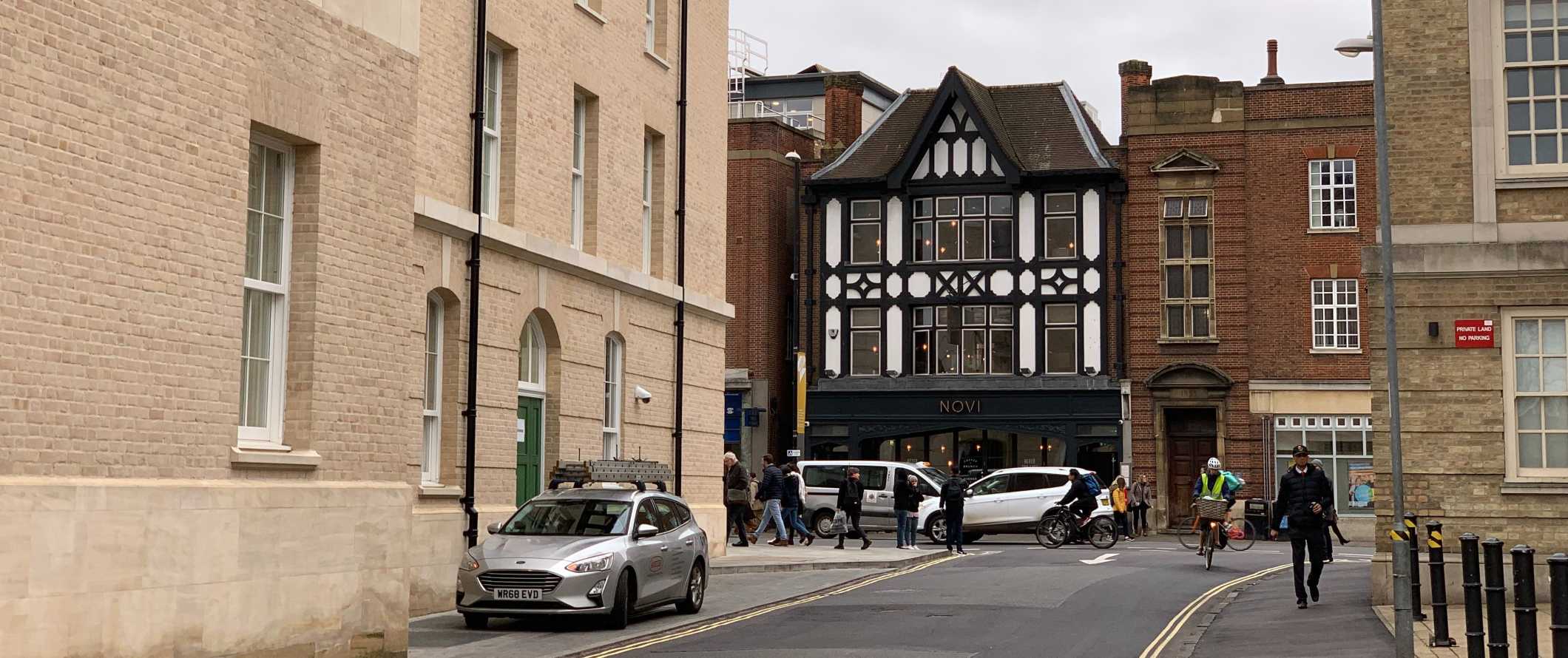
Accommodation
- Hostel dorms – 20 GBP per night
- Hostel private rooms – 59 GBP per night
- Budget hotels – 50-80 GBP per night
- College rooms – 55-100 GBP per night
- Airbnb private rooms – 65-90 GBP per night
- Airbnb apartments – 90-140 GBP per night
- Campsite – 15-20 GBP per night
- Lunch specials – 8-9 GBP
- Pre-made sandwiches – 5 GBP
- Sit-down restaurants – 11-30 GBP
- Fast food (think McDonald’s) – 6 GBP
- Beer – 5 GBP
- Cappuccino/latte – 3 GBP
- Bottled water – 1.50 GBP
- Groceries for a week – 40-55 GBP
Cambridge Suggested Budgets
Backpacker – 55 gbp per day.
If you’re backpacking, this budget covers a hostel dorm, walking and taking public transportation, cooking all your meals, limiting your drinking, and doing mostly free activities like free walking tours and free museum visits. If you plan on drinking, add another 5-10 GBP to your daily budget.
Midrange – 150 GBP Per Day
A mid-range budget covers staying in a private Airbnb or private hostel room. You’ll be able to eat out for most meals, have a few drinks, take the occasional taxi, and do more paid activities such as going punting or visiting the botanical garden.
Upscale – 245 GBP Per Day
On a “luxury” budget, you can stay in a hotel, eat out anywhere you want, drink more, rent a car or take more taxis, and do as many tours and activities as you want. This is just the ground floor for luxury, though. The sky is the limit!
Cambridge Travel Guide: Money-Saving Tips
Since Cambridge is a student-oriented city, you can find lots of ways to cut corners on your budget. Here are my top tips for saving money when you visit Cambridge:
Bring a water bottle – The tap water here is safe to drink so bring a reusable water bottle to save money and reduce your plastic use. LifeStraw is my go-to brand as their bottles have built-in filters to ensure your water is always clean and safe.
Attend a lecture – Attending a free lecture at the university is well worth it. You can experience what the students do and be immersed in the academic world for an afternoon. Check the university’s website for the official public talks to play student for the day!
Walk in the parks – The parks are mostly free here (the Botanical Garden charges a small entrance fee) and are a great place to relax. Bring a book, pack a snack, and lounge the day away!
Take a free walking tour – If you want to get a better feel for the city, be sure to take a free walking tour. They only last a couple of hours and are a great way to engage with the city’s history. Don’t forget to tip your tour guide!
Visit the Visitor Information Centre – Pop into the Visitor Information Centre as they often have discounted tickets for punting and other activities around the city. They can let you know what’s happening and show you how to save money.
Stay with a local – If you’re on a budget, use Couchsurfing to get free accommodation. It’s a great way to cut costs while connecting with a local. Many students are away in the summer, however, so be sure to apply early.
Bike or walk everywhere – Cambridge is not a large city so you can pretty much walk or bike everywhere. Skip taxis and public transportation if you’re on a budget.
How to Get Around in Cambridge
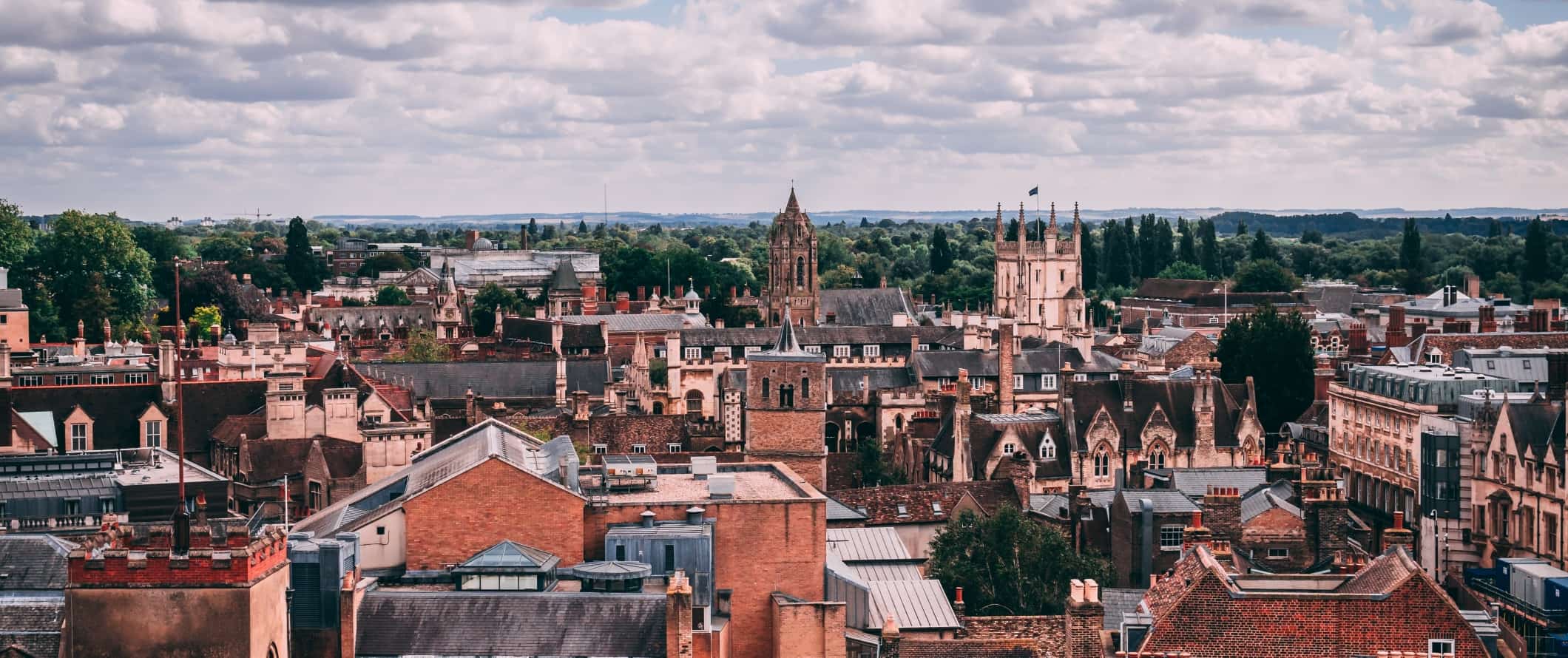
Public transportation – Cambridge is pedestrian-friendly and you can pretty much walk everywhere. However, there’s also a bus available if you need to go further afield.
City bus fares cost 1-3 GBP per ride depending on how far you go. An all-day pass is 4.50 GBP.
Additionally, London is only an hour away from Cambridge by bus or train, making it easy to plan a day or weekend trip to the university town. Flixbus has tickets for as little as 4 GBP, but the timings are pretty anti-social (think midnight or later). National Express has options for around 21 GBP but you have to change at Heathrow.
Expect to pay anywhere between 8-29 GBP for a train that is quicker and more direct (trains leave from Liverpool Street, Kings Cross, and St Pancras and take 50 minutes to 1.5 hours depending on which station you leave from). Note: buying in advance can lower prices significantly.
Bicycle – Renting a bike is a great way to explore the outer areas of the city. Full-day rentals (8 hours) cost around 15 GBP.
Taxi – Taxis start at 2.80 GBP and go up 1.75 GBP per mile. Since prices add up fast, I suggest skipping the taxis if you can.
Ridesharing – Uber is available here, however, since you can walk everywhere and the bus is super affordable, I suggest skipping the rideshares.
Car rental – Car rentals can be found for as little as 18 GBP per day for a multi-day rental, however, you definitely don’t need one to explore the city. I’d only suggest a car rental if you’re traveling around the region. Just remember that driving is on the left and that most vehicles have manual transmissions.
For the best car rental prices, use Discover Cars .
When to Go to Cambridge
Like London, Cambridge can be rainy and foggy year-round. Summer is the hottest time of year, with temperatures averaging 20°C (68°F) between June and September. This is also Cambridge’s peak travel season, so expect bigger crowds and inflated prices (especially during festivals and events).
Spring and autumn are the shoulder seasons, with milder temperatures and moderate rainfall. The atmosphere in town is upbeat, as the school year is in full swing. Prices are also lower, so you can afford to splurge a little more.
Winter can be very cold, with temperatures hovering around 6°C (43°F). December and January can be rainy, so be sure to pack lots of layers if you visit during this time.
Cambridge Travel Guide: The Best Booking Resources
These are my favorite companies to use when I travel. They consistently have the best deals, offer world-class customer service and great value, and overall, are better than their competitors. They are the companies I use the most and are always the starting point in my search for travel deals.
- Skyscanner – Skyscanner is my favorite flight search engine. They search small websites and budget airlines that larger search sites tend to miss. They are hands down the number one place to start.
- Hostelworld – This is the best hostel accommodation site out there with the largest inventory, best search interface, and widest availability.
- Booking.com – The best all around booking site that constantly provides the cheapest and lowest rates. They have the widest selection of budget accommodation. In all my tests, they’ve always had the cheapest rates out of all the booking websites.
- HostelPass – This new card gives you up to 20% off hostels throughout Europe. It’s a great way to save money. They’re constantly adding new hostels too. I’ve always wanted something like this and glad it finallt exists.
- Get Your Guide – Get Your Guide is a huge online marketplace for tours and excursions. They have tons of tour options available in cities all around the world, including everything from cooking classes, walking tours, street art lessons, and more!
- The Man in Seat 61 – This website is the ultimate guide to train travel anywhere in the world. They have the most comprehensive information on routes, times, prices, and train conditions. If you are planning a long train journey or some epic train trip, consult this site.
- Rome2Rio – This website allows you to see how to get from point A to point B the best and cheapest way possible. It will give you all the bus, train, plane, or boat routes that can get you there as well as how much they cost.
- FlixBus – Flixbus has routes between 20 European countries with prices starting as low 5 EUR! Their buses include WiFi, electrical outlets, a free checked bag.
- SafetyWing – Safety Wing offers convenient and affordable plans tailored to digital nomads and long-term travelers. They have cheap monthly plans, great customer service, and an easy-to-use claims process that makes it perfect for those on the road.
- LifeStraw – My go-to company for reusable water bottles with built-in filters so you can ensure your drinking water is always clean and safe.
- Unbound Merino – They make lightweight, durable, easy-to-clean travel clothing.
- Top Travel Credit Cards – Points are the best way to cut down travel expenses. Here’s my favorite point earning credit cards so you can get free travel!
- BlaBlaCar – BlaBlaCar is a ridesharing website that lets you share rides with vetted local drivers by pitching in for gas. You simply request a seat, they approve, and off you go! It’s a cheaper and more interesting way to travel than by bus or train!
GO DEEPER: Nomadic Matt’s In-Depth Budget Guide to Europe!
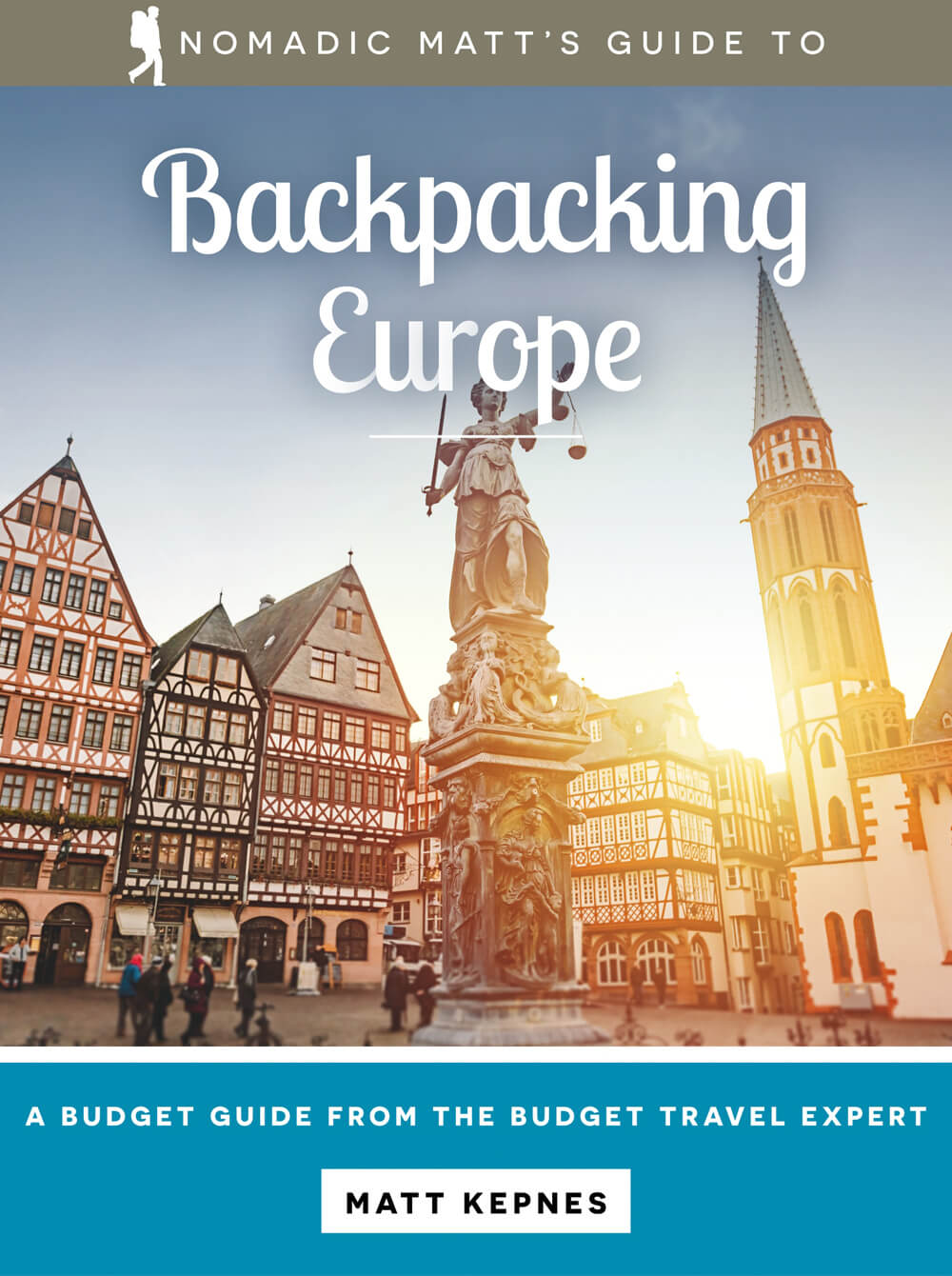
There’s a lot of free information online but do you want to spend days searching for information? Prob not! That’s why guidebooks exist.
While I have a lot of free tips on Europe, I also wrote an entire book that goes into great detail on everything you need to plan a trip here on a budget! You’ll get suggested itineraries, budgets, even more ways to save money, my favorite restaurants, prices, practical information (i.e. phone numbers, websites, prices, safety advice, etc etc), and cultural tips.
I’ll give the insider view of Europe that I got from years of traveling and living here! The downloadable guide can be used on your Kindle, iPad, phone, or computer so you can have it with you when you go. Click here to learn more about my book on Europe!
GET YOUR FREE TRAVEL STARTER KIT
Enter your email and get planning cheatsheets including a step by step checklist, packing list, tips cheat sheet, and more so you can plan like a pro!

- Where To Stay
- Transportation
- Booking Resources
- Related Blogs
- Course Search
Graduate Entry Medicine MBChB
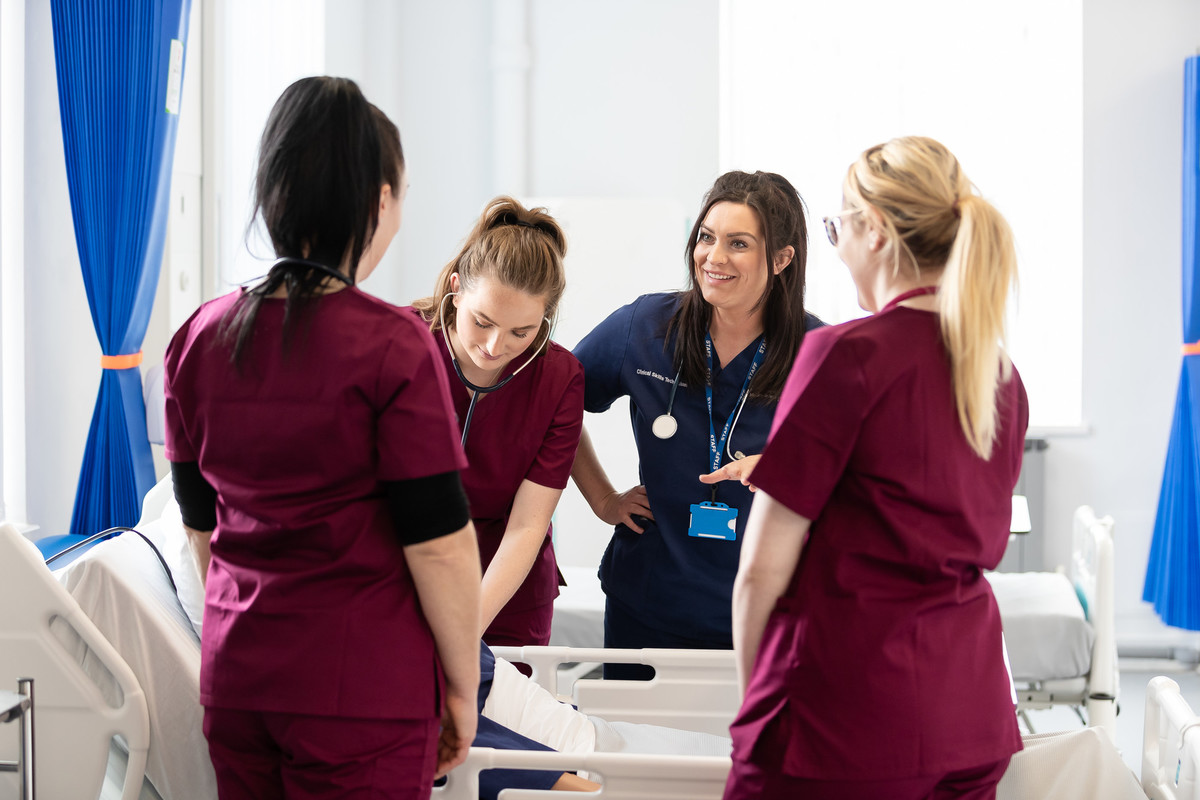
Applications for September 2024 are now closed.
Graduate Entry Medicine Open Events - 2nd October 2024
This event is for students who are looking to apply by the UCAS (Medicine and Dentistry) application deadline of 16 th October 2024 to study Graduate Entry Medicine MBChB from September 2025. At this event you will have the opportunity to hear an overview of the course, where you will be able to ask any questions you have about the course, studying medicine, the University and the region, to senior members of the MBChB team. You can also visit our fantastic clinical skills and simulation facilities, where there will be a demonstration of anatomy teaching. Tou can book a Campus Tour of our site, where you will be able to view wider university facilities.
Book your place
You are viewing Course summary
Course Summary
What you'll study, how you'll learn, entry requirements, fees and funding.
- Who you’ll learn from
Where you'll study Wheeler, Chester
Your future career.
- Apply as Home Student via UCAS
- Apply as International Student
- Request a Prospectus
Applications for this course for 2025 entry can be made by Home/UK and International students through UCAS by 18:00 on 15 October 2024.
The University of Chester's medical degree is a four-year, graduate entry MBChB programme, open to applicants with a previous degree in any discipline. Unlike many traditional MBChB degrees, this allows more mature students to consider becoming a doctor after having completed a previous course of study towards a graduate degree. For example, even if you have a first degree in the arts, humanities or languages but would now like to study medicine, you are eligible to apply. We welcome people from a wide variety of backgrounds who wish to pursue a degree in graduate entry medicine in the UK, not just those with a background in science or allied health care disciplines.
Our medicine programme has been designed to provide you with the underpinning scientific and clinical knowledge, skills and professional behaviours required of a 21st-century doctor. The course is structured into a series of core university and health and care placement blocks, which gradually introduce and prepare you for working with complex situations and more independently as a Foundation Doctor.
You will meet patients right from the early part of the course and this, plus our case-based learning approach, placements and simulation, provides a continuing focus on patient care. A strength of the University of Chester MBChB programme is the longitudinal integration of core themes throughout all four years of the course. This spiral curriculum approach integrates the introduction and consolidation of knowledge and skills appropriate to each stage of the course.
Community and primary care placements and hospital-based teaching provide a rich experience within a variety of settings across our region with a diversity of patient groups. Clinical exposure increases as you progress through the course, with placements in primary, community and secondary care settings and across clinical specialties on a rotational basis in Years 2, 3 and 4. Academic blocks and days are integrated throughout these years, offering opportunities for additional teaching, support, and consolidation of learning.
Student Selected Components (SSC) run throughout the four years of the programme. You can choose from a range of options, each of which has broad relevance to the core MBChB curriculum and enables you to explore a particular topic in greater depth.
As a new medical school, we are required to undergo quality assurance by the General Medical Council (UK) to ensure that our medical education is of a high standard and that we meet the requirements for all UK medical schools set out in the document, “ Promoting excellence: standards for medical education and training ”. The GMC's quality assurance process has several stages, culminating in approval for a new medical school to award a Primary Medical Qualification (PMQ). Chester Medical School is progressing through the stages of the GMC approval process and have agreed the 2024 commencement date with the GMC. As a graduate of the University of Chester's MBChB programme, you will be eligible to provisionally register with the General Medical Council (providing you meet all the GMC's Fitness to Practice requirements) and apply for Year 1 of the UK Foundation Programme (UKFPO). Places on the UKFPO are competitive and subject to you meeting all the eligibility criteria.
To avoid any risk to students enrolled on a new medical programme, each new medical school is mandated to have a contingency school. The contingency arrangement ensures that students are able to continue and complete their course of study in the unlikely event of a failure in the provider’s programme. The University of Chester's contingency school is Warwick Medical School .
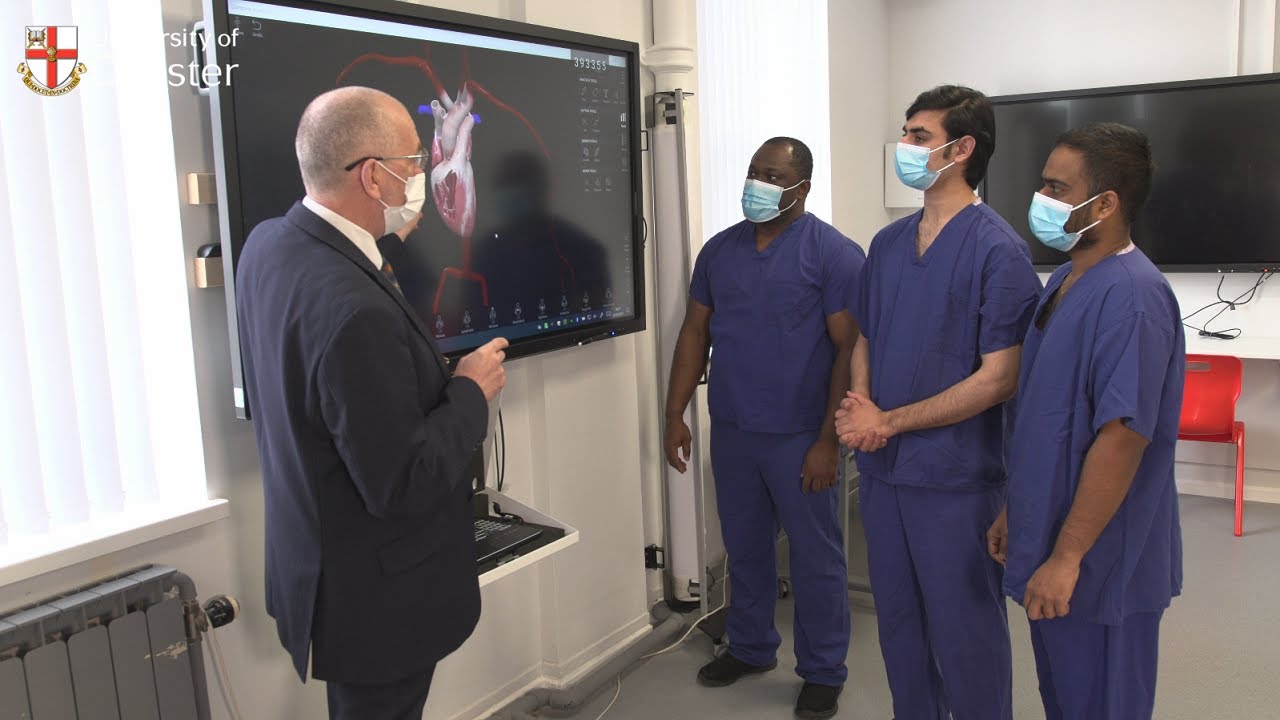
MB ChB Graduate Entry Medicine at Chester Medical School
The aim of Year 1 is to equip you with the core knowledge, practical and clinical skills needed to get the most out of the intensive clinical placements in the rest of the course. The first year is therefore mainly provided as university-based teaching in the Wheeler Building on our Chester campus. Your learning is organised into five blocks of five weeks each. In each block, you will learn the biomedical, psychosocial and clinical knowledge and skills through a combination of lectures, case-based learning (CBL), practical sessions and simulation and clinical skills sessions, delivered in our state-of-the-art simulation facilities. You will learn with, alongside and about other health professionals, reflecting the interprofessional nature of our health and care programmes. You will meet patients early in the medical programme and be prepared for this through a combination of simulated patient encounters and clinical skills training.
MODULE • Foundations of Science and Medicine (120 credits)
Year 2 is divided into three main blocks of teaching: Advanced Cases 1: You will spend approximately four days per week working with advanced clinical cases in group work and self-study with focused plenary lectures, as well as undertaking a student selected project (SSC I), and a day per week in clinical settings undertaking related clinical learning with patients in hospital and community settings. The Core Clinical Education block comprises three ten-week clinical placements in General Medicine, Surgery and other specialties. You will also undertake placements in General Practice (Family Medicine) and Community Psychiatry. In this block, you will spend most of your time in the clinical environment, building upon the theoretical material learned in earlier years. Student Selected Components (SSCs) will run throughout the year.
MODULE • Core Clinical Education and Principles of Clinical Practice
The majority of teaching in Year 3 is based in regional community settings, general practice and NHS hospitals. Your Year 3 Student Selected Component (SSC) will run throughout the year and will include an opportunity to undertake a research project in an area which interests you. Advanced Cases 2: You will work with advanced clinical cases in group work and self-study with focused plenary lectures for approximately two days per week, and in clinical areas for three days per week undertaking related clinical learning with patients in the relevant hospital or community setting. Cases are designed to consider various patient care pathways (e.g. cancer, frailty, dementia) in primary and secondary care. Specialist Clinical Placements: These six-week placements cover eight specialties, six of which are undertaken in Year 3 and two in Year 4. Each student will undertake these in a rotation; therefore, scheduling varies according to student group.
MODULE • Speciality Training Preparation for Practice 1
Year 4 is designed to prepare you for the national Medical Licensing Assessment (MLA) and for working as a Foundation doctor. In the final year, you will finish the last of your specialist clinical placements, followed by the Junior Assistantship where you will rotate through acute medical and surgical specialties and primary and community care. After a consolidation period and the national examinations, you will undertake an elective in the UK or overseas to explore an area of interest, and finish the year with the Assistantship, working with Foundation doctors prior to you starting your first Foundation post.
MODULE • Speciality Training Preparation for Practice 2
Lectures, seminars, clinical and communication skills, simulation and workshops
Written and practical assessments including, workplace-based evaluations
This course is designed around in-person study
There may be some online learning activities
Case-Based Learning
Case-based learning (CBL) is central to the MBChB curriculum. It mirrors the way experienced doctors learn throughout their professional lives, by putting knowledge in the context of how people present with health concerns and conditions. Throughout the four years, you will work in small groups facilitated by a tutor to explore and analyse a range of clinical cases that will help you to learn all the core information required for you to become a safe, competent, and compassionate doctor. CBL sessions are supported by lectures, seminars, clinical skills sessions and learning opportunities in the community and hospital.
CBL is structured to enable you to integrate the biomedical, psycho-social and clinical sciences with real-world medical problems, helping you to develop team-working, communication and professional skills that are vital to becoming an effective doctor.
- Home Students
- International Students
2:1 honours degree
- At least an upper second class honours (2:1) degree in any subject.
- Candidates with a lower second class degree should hold either a Master's or a Doctoral qualification to be considered.
- In the case of an Intercalated Master's eg. MEng/MPharm, the equivalent of a Pass grade or above at Master's level (minimum 2:2).
- If you are starting or have started the final year of an undergraduate entry degree then you can apply, but please be aware that any offer will be conditional on you achieving a 2:1 or above. Similarly, if you have a 2:2 and are about to commence or you have already commenced a Master’s degree any offer will be conditional on successful award of a Master's degree.
- Meeting the minimum threshold mark in either UCAT , GAMSAT or MCAT . The total score required to secure a place at an MBChB Selection Centre varies year on year and is dependent upon the performance of all applicants. The acceptable threshold score includes a verbal reasoning score at or above the mean for the cohort in the year of application. Please see below for the required marks to join our September 2024 cohort.
- Applicants will be required to provide references to evidence work experience if invited to attend a selection centre: 70 hours (the equivalent of around ten days’) of prior work experience in a healthcare or allied setting, as a volunteer, or in a paid capacity, as a helper to someone with healthcare needs. Evidence of experience working in a healthcare environment can include being a Care Assistant in a care home/hospital, a volunteer in a hospital, visiting someone in their home to care for them, and working in a hospital lab or other healthcare setting. This work experience must have taken place in the 3 years prior to the date of application. Shadowing a doctor/healthcare professional can only count for a maximum of 20 hours against the minimum requirement of 70 hours. Applicants for 2024 entry may apply without the required 70 hours however they must be working towards it. It would then become a condition if an offer was made.
- Applicants must provide one reference from a person (not a relative or friend) who holds/has held a position of responsibility and who can comment on the applicants suitability for studying medicine. If the applicant has been in higher education in the last two years prior to application, an academic reference should be provided.
- At Chester we do not consider applications from those with previous academic failure at medical (or dental) school. For those with other, genuine reasons for needing to leave medical school, we consider these on a case-by-case basis and always contact the previous medical school for confirmation. Entry is only into Year 1 via the standard admissions process.
- All applicants who successfully meet the academic criteria and entry test standards will be required to attend for interview. The interview process lasts approximately one and a half hours and takes the form of six Multiple Mini Interviews (MMIs). The detail of the stations will change each year, but all are designed to assess against GMC guidance on ‘Good Medical Practice’. You will be observed and scored at each station by two trained assessors. Assessors come from a range of backgrounds and include medical professionals, academics, current students and lay people with an interest in medical education. On completion of the MMI process, each candidate’s score profile is carefully reviewed to determine which candidates will be made an offer.
- All successful applicants must declare any and all, past or current, health, welfare and conduct issues that may affect an individual's fitness to study medicine and practise as a doctor following successful completion of the course.
- All successful applicants will be required to apply for an Enhanced Disclosure from the Disclosure and Barring Service (DBS) , payable by the applicant. International applicants will need to provide evidence from the country they are residing by following the advice provided on the DBS website .
Disclaimer: Please be aware we are not able to give individual feedback from our selection centre process.
The minimum threshold scores vary each year. The table below shows our 2024 admissions threshold which should be used as a guide only and the 2025 admissions thresholds will be updated as appropriate.
Occupational Health
You will not be able to be involved with NHS patients in the United Kingdom unless you are cleared by our occupational health (OH) provider, Innovate Health Care.
Before coming to the UK to study medicine, Chester Medical School requires that all students meet the immunisation and screening standards required for working in the National Health Service (NHS) as required by the UK Department of Health.
The first part of the clearance process is the completion of the online health questionnaire. The second part is to ensure that you have received the vaccinations as required by the UK Department of Health.
An appointment with our Occupational Health (OH) provider will be arranged for you at the start of your training and before you undertake any clinical placements.
Attendance at your OH appointment is mandatory, and you will need to show photo ID when you attend your appointment such as a driving licence or passport.
We cannot force you to have a vaccination and there will be some students who are exempt. However, it is unlikely that OH will recommend that you are fit for clinical placements if you have not had the appropriate vaccinations. This may mean that your offer of a place on the programme may be withdrawn.
It is highly recommended that you are immunised against the following if you do not already have immunity to them:
Please bring with you any records with details of your immunisations including dates of administration.
Please note that although we do not mandate Covid-19 or influenza immunisation we advise you to have your booster vaccinations to protect you, your colleagues and patients.
Throughout your programme we may need to seek independent advice from our occupational health provider and refer you to their services. This may involve further vaccinations or other appropriate interventions.
It is important that you are truthful when completing your online health questionnaire. Dishonesty is incompatible with training regulated by the General Medical Council and may result in a Fitness to Practise referral.
The University of Chester adheres to the principles of the Data Protection Act 2018 and the GMC Code of Confidentiality.
- All successful
- applicants will be required to apply for an Enhanced Disclosure from the Disclosure and Barring Service (DBS) , payable by the applicant. International applicants will need to provide evidence from the country they are residing by following the advice provided on the DBS website .
The minimum threshold scores vary each year. The table below shows our 2024 admissions threshold which should be used as a guide only and the 2025 admissions thresholds will be updated as appropriate.
The University of Chester adheres to the principles of the Data Protection Act 2018 and the GMC Code of Confidentiality.
English Language Requirements
International applicants will be required to submit an English Language test certificate confirming a score of (or equivalent to) IELTS 7.0 with a maximum of two component scores at 6.0 or 6.5. Please note, we do not accept University of Chester in-country English Language Tests for the MBChB course.
- Additional Costs
£9,250 per year (2024/2025)
The tuition fees for Home students studying Graduate Entry Medicine in 2024/25 are 9,250 per year.
Graduate Entry Medicine students apply for Undergraduate finance as they can receive the standard package of support including Tuition and Maintenance support.
The regulations provide that eligible students can apply for a tuition loan of up to £5,785 for the first academic year of their course and £5,535 in all other years of the course. Graduate Entry Medicine students are however still required to self-fund the first £3,465 of the tuition charged in their first year. In years two to four of the course, the first £3,715 is paid as part of the income-assessed NHS Bursary.
In year 1 students can apply for a means-tested maintenance loan and supplementary grants from Student Finance England and from year 2 to 4 of the course, as these students can apply for means-tested NHS bursaries, they become eligible for the RRML.
£42,500 per year (2024/2025)
The tuition fees for international students studying Graduate Entry Medicine in 2024/25 are £42,500.
Irish Nationals living in the UK or ROI are treated as Home students for Tuition Fee Purposes.
Your course will involve additional costs not covered by your tuition fees. This may include books, printing, photocopying, educational stationery and related materials, specialist clothing, travel to placements, optional field trips and software. Compulsory field trips are covered by your tuition fees.
If you are living away from home during your time at university, you will need to cover costs such as accommodation, food, travel and bills.
The University of Chester supports fair access for students who may need additional support through a range of bursaries and scholarships.
Full details, as well as terms and conditions for all bursaries and scholarships can be found on the Fees and Finance section of our website.
Who you’ll learn from
Professor arpan guha.

City centre location
Located within the lively city centre of Chester and overlooking the River Dee, Wheeler is home to most courses within Nursing and Midwifery, Health and Social Care, and Law.
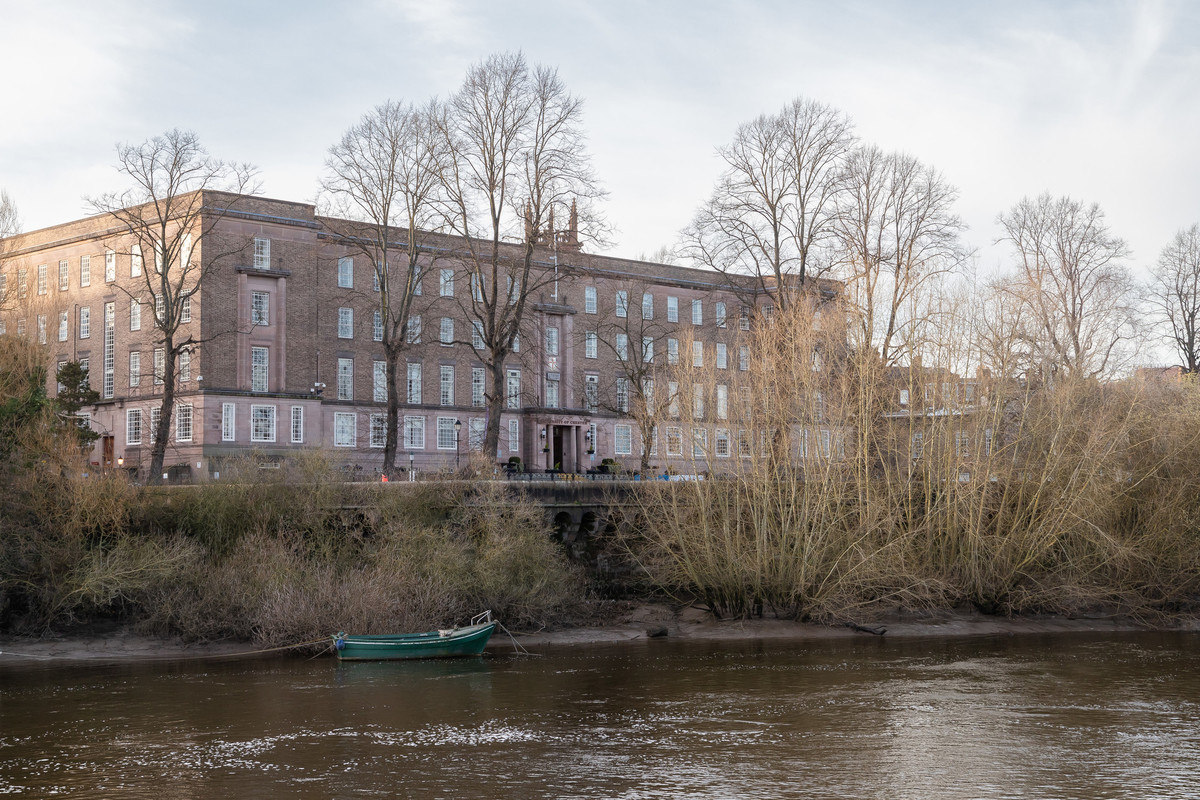
Health and Social Care simulation suite
Our simulation suite emulates diverse healthcare spaces, ranging from a patient’s home and community clinic settings to acute care settings, including a Triage Assessment Area, Maternity Delivery Suite, Children’s Ward, and a General Ward.
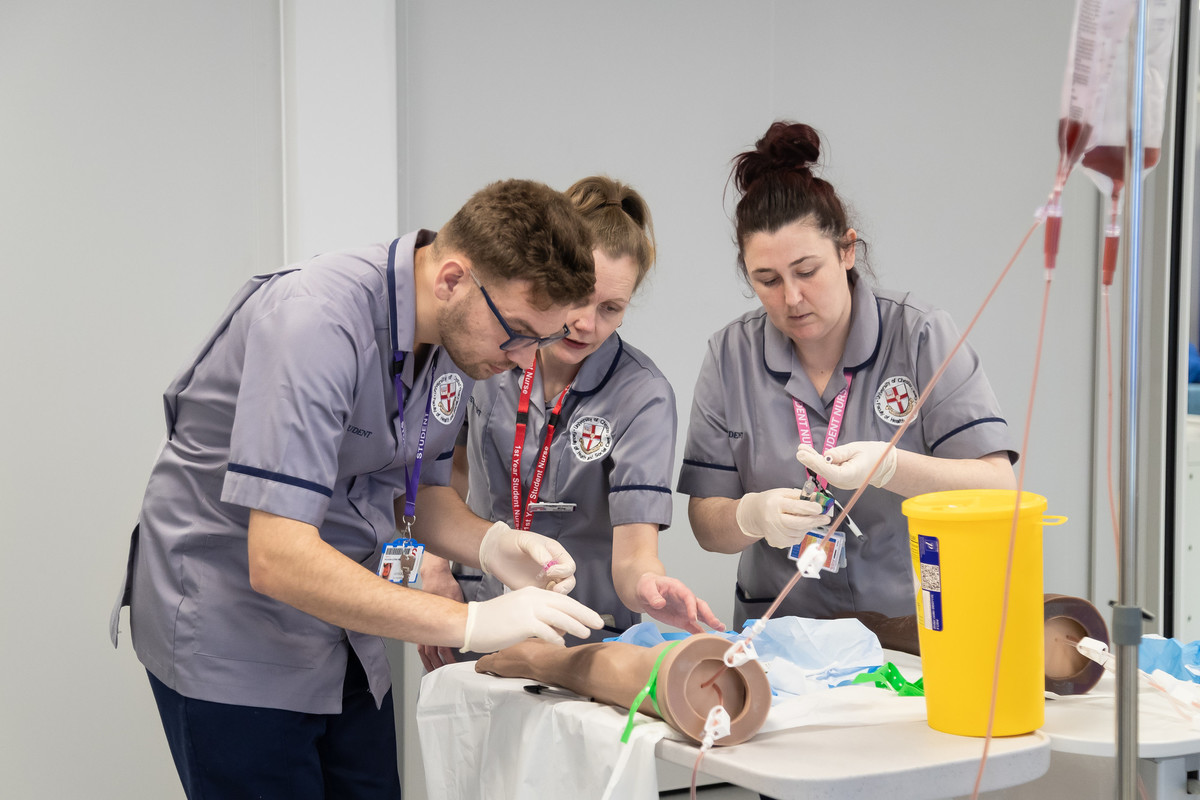

On-site library
Our on-site library houses extensive book collections, journals, and school-based resources, as well as computer suites and multimedia rooms that are ideal for Law students to access the Oxford University Press Law Trove, which houses all of their core texts online.

Social spaces
Wheeler’s café and coffee shop serves hot and cold drinks, snacks, and delicious meals. Meanwhile, the student common room provides a social, group work, and discussion space for students.
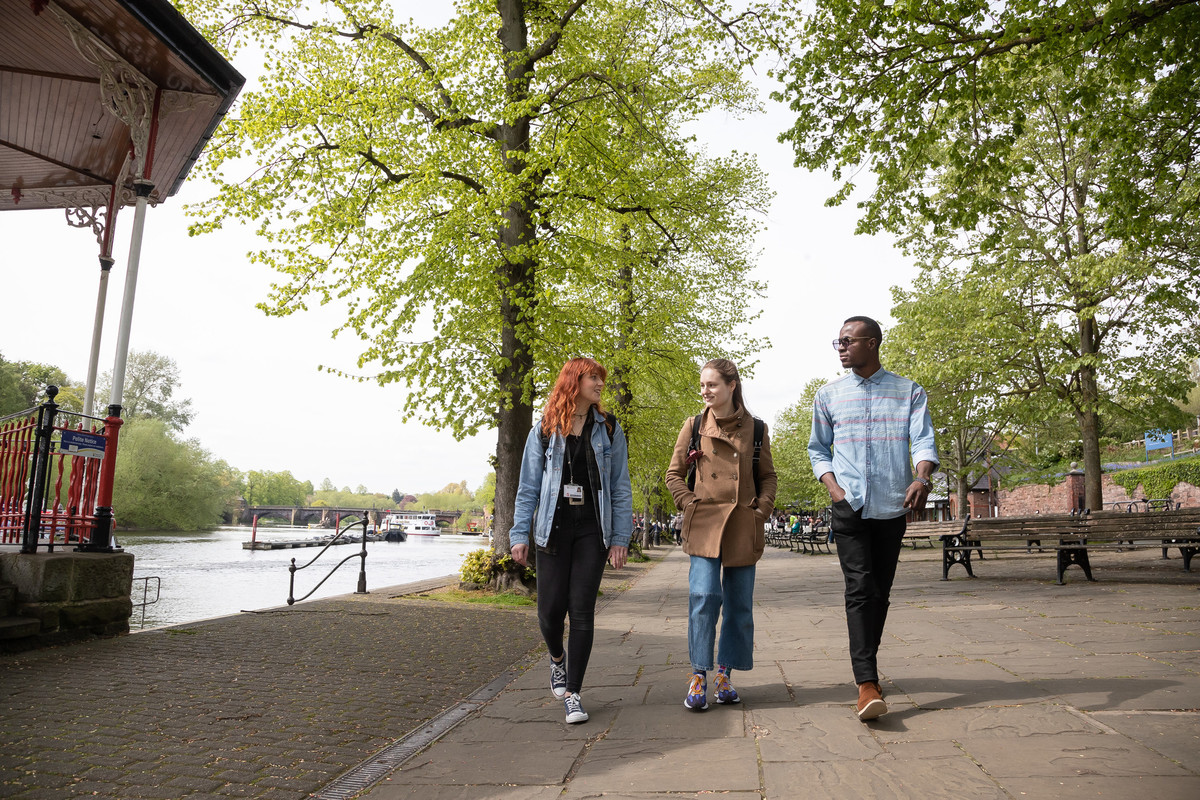
Job prospects
Being a doctor is not just about scientific knowledge, you must develop both professionally and personally throughout your career. The Professionalism and Personal Development strand runs throughout our curriculum with this in mind. Important aspects that you will explore include
- Teamworking
- Managing change and uncertainty
- Managing complexity
- Patient safety, including understanding how medical errors occur
- Leadership and management
- Time management and task prioritisation
- Becoming an effective teacher
- Managing your own wellbeing, developing resilience to stress
- Reflective thinking
- Learning to learn effectively
Careers service
The University has an award-winning Careers and Employability service which provides a variety of employability-enhancing experiences; through the curriculum, through employer contact, tailored group sessions, individual information, advice and guidance.
Careers and Employability aims to deliver a service which is inclusive, impartial, welcoming, informed and tailored to your personal goals and aspirations, to enable you to develop as an individual and contribute to the business and community in which you will live and work.
We are here to help you plan your future, make the most of your time at University and to enhance your employability. We provide access to part-time jobs, extra-curricular employability-enhancing workshops and offer practical one-to-one help with career planning, including help with CVs, applications and mock interviews. We also deliver group sessions on career planning within each course and we have a wide range of extensive information covering graduate jobs .
My Saved Courses ( 0 )

Study at Cambridge
About the university, research at cambridge.
- Undergraduate courses
- Events and open days
- Fees and finance
- Postgraduate courses
- How to apply
- Postgraduate events
- Fees and funding
- International students
- Continuing education
- Executive and professional education
- Courses in education
- How the University and Colleges work
- Term dates and calendars
- Visiting the University
- Annual reports
- Equality and diversity
- A global university
- Public engagement
- Give to Cambridge
- For Cambridge students
- For our researchers
- Business and enterprise
- Colleges & departments
- Email & phone search
- Museums & collections
- About the Department
Department of History and Philosophy of Science
- About the Department overview
- How to find the Department
- Annual Report
- HPS Discussion email list
- Becoming a Visiting Scholar or Visiting Student overview
- Visitor fee payment
- Becoming an Affiliate
- Applying for research grants and post-doctoral fellowships
- Administration overview
- Information for new staff
- Information for examiners and assessors overview
- Operation of the HPS plagiarism policy
- Information for supervisors overview
- Supervising Part IB and Part II students
- Supervising MPhil and Part III students
- Supervising PhD students
- People overview
- Teaching Officers
- Research Fellows and Teaching Associates
- Professional Services Staff
- PhD Students
- Research overview
- Research projects overview
- Digitising Philippine Flora
- Colonial Natures overview
- The Challenge of Conservation
- Natural History in the Age of Revolutions, 1776–1848
- In the Shadow of the Tree: The Diagrammatics of Relatedness as Scientific, Scholarly and Popular Practice
- The Many Births of the Test-Tube Baby
- Culture at the Macro-Scale: Boundaries, Barriers and Endogenous Change
- Making Climate History overview
- Project summary
- Workstreams
- Works cited and project literature
- Histories of Artificial Intelligence: A Genealogy of Power overview
- From Collection to Cultivation: Historical Perspectives on Crop Diversity and Food Security overview
- Call for papers
- How Collections End: Objects, Meaning and Loss in Laboratories and Museums
- Tools in Materials Research
- Epsilon: A Collaborative Digital Framework for Nineteenth-Century Letters of Science
- Contingency in the History and Philosophy of Science
- Industrial Patronage and the Cold War University
- FlyBase: Communicating Drosophila Genetics on Paper and Online, 1970–2000
- The Lost Museums of Cambridge Science, 1865–1936
- From Hansa to Lufthansa: Transportation Technologies and the Mobility of Knowledge in Germanic Lands and Beyond, 1300–2018
- Medical Publishers, Obscenity Law and the Business of Sexual Knowledge in Victorian Britain
- Kinds of Intelligence
- Varieties of Social Knowledge
- The Vesalius Census
- Histories of Biodiversity and Agriculture
- Investigating Fake Scientific Instruments in the Whipple Museum Collection
- Before HIV: Homosex and Venereal Disease, c.1939–1984
- The Casebooks Project
- Generation to Reproduction
- The Darwin Correspondence Project
- History of Medicine overview
- Events overview
- Past events
- Philosophy of Science overview
- Study HPS overview
- Undergraduate study overview
- Introducing History and Philosophy of Science
- Frequently asked questions
- Routes into History and Philosophy of Science
- Part II overview
- Distribution of Part II marks
- BBS options
- Postgraduate study overview
- Why study HPS at Cambridge?
- MPhil in History and Philosophy of Science and Medicine overview
- A typical day for an MPhil student
- MPhil in Health, Medicine and Society
- PhD in History and Philosophy of Science overview
- Part-time PhD
PhD placement record
- Funding for postgraduate students
- Student information overview
- Timetable overview
- Primary source seminars
- Research methods seminars
- Writing support seminars
- Dissertation seminars
- BBS Part II overview
- Early Medicine
- Modern Medicine and Biomedical Sciences
- Philosophy of Science and Medicine
- Ethics of Medicine
- Philosophy and Ethics of Medicine
- Part III and MPhil
- Single-paper options
- Part IB students' guide overview
- About the course
- Supervisions
- Libraries and readings
- Scheme of examination
- Part II students' guide overview
- Primary sources
- Dissertation
- Key dates and deadlines
- Advice overview
- Examination advice
- Learning strategies and exam skills
- Advice from students
- Part III students' guide overview
- Essays and dissertation
- Subject areas
- MPhil students' guide overview
- Essays and dissertation overview
- How to choose the topic of your essays and dissertation
- PhD students' guide overview
- Welcome to new PhDs
- Registration exercise and annual reviews
- Your supervisor and advisor
- Progress log
- Intermission and working away from Cambridge
- The PhD thesis
- Submitting your thesis
- Examination
- News and events overview
- Seminars and reading groups overview
- Departmental Seminars
- Coffee with Scientists
- Cabinet of Natural History overview
- Publications
History of Medicine
- Purpose and Progress in Science
- The Anthropocene
- Measurement Reading Group
- Teaching Global HPSTM
- Pragmatism Reading Group
- History of Science and Medicine in Southeast Asia
- Atmospheric Humanities Reading Group
- Science Fiction & HPS Reading Group
- Values in Science Reading Group
- Cambridge Reading Group on Reproduction
- HPS Workshop
- Postgraduate Seminars overview
- Images of Science
- Language Groups overview
- Latin Therapy overview
- Bibliography of Latin language resources
- Fun with Latin
- Archive overview
- Easter Term 2024
- Lent Term 2024
- Michaelmas Term 2023
- Easter Term 2023
- Lent Term 2023
- Michaelmas Term 2022
- Easter Term 2022
- Lent Term 2022
- Michaelmas Term 2021
- Easter Term 2021
- Lent Term 2021
- Michaelmas Term 2020
- Easter Term 2020
- Lent Term 2020
- Michaelmas Term 2019
- Easter Term 2019
- Lent Term 2019
- Michaelmas Term 2018
- Easter Term 2018
- Lent Term 2018
- Michaelmas Term 2017
- Easter Term 2017
- Lent Term 2017
- Michaelmas Term 2016
- Easter Term 2016
- Lent Term 2016
- Michaelmas Term 2015
- Postgraduate and postdoc training overview
- Induction sessions
- Academic skills and career development
- Print & Material Sources
- Other events and resources
Becoming a Visiting Scholar or Visiting Student
- Administration
Every year we are approached by scholars from all over the world who want to spend short periods working in Cambridge as Visiting Scholars or Visiting Students. We charge visitors £650 per term (or part of a term) for the use of University and Departmental facilities. Visitors are given the following privileges:
- a Cambridge email account;
- access to shared computing and workspace facilities in HPS and throughout the University;
- access to the Department's Whipple Library and the main University Library ;
- the right to attend research seminars and lectures throughout the University.
Visiting Scholars
To be eligible to become a Visiting Scholar you must:
- already be engaged in an academic career;
- be employed by a higher education institution;
- hold a PhD, or some similar relevant qualification.
Visiting Scholars typically stay for a period ranging from a month to a year; applications for longer than a year may be considered under exceptional circumstances.
Visiting Students
To be eligible to become a Visiting Student you must:
- be a postgraduate student pursuing doctoral research (master's students may be considered under exceptional circumstances);
- have permission from your home institution to come to Cambridge;
- meet the University's English language requirements .
Visiting Students may apply to come for up to six months. A longer period is not possible, as it would require formal registration at the University of Cambridge.
When your visit is approved, you will be issued with a Student Visitor's Agreement, to be signed by the student visitor, their home institution, and the HPS Deputy Departmental Administrator (on behalf of the Head of Department).
All applicants who are not UK or Irish nationals are subject to immigration control. You must apply for appropriate visa supporting documentation, which can be done once the Student Visitor's Agreement has been signed and returned.
Undergraduate student visitors Undergraduate students wishing to spend some time here should apply via the College of their choice for a place as an Affiliated Student. Each College has its own quota for such students and its own fees. This process is outside of the Department's control. To choose a College, view the list here .
When to apply
You can apply at any time but please be aware that applications received between terms may not be reviewed until the following term. You can see the dates of university terms here . It will take at least three weeks to process an application. Please apply at least one term before you are planning to visit (e.g. by October for a January visit, by January for an April visit, by June for an October visit).
What to submit
Please make a single PDF file containing all of the following, and email it to the Department :
- A brief curriculum vitae (no more than three pages).
- A covering letter stating why and for how long you wish to come to Cambridge, with the proposed start and end dates of the visit.
- Details of the type of visa you will be travelling on. ( Advice for visiting students can be found here .)
- An outline of the research you propose to conduct while you are here.
- The name of a member of staff in the Department of HPS who is willing to act as your sponsor. This should be the person you would most like to work with or whose interests overlap most with your own. You must contact this person to discuss their availability before submitting an application. Please note that the application will only be successful if there is a person willing to sponsor you and that person will be present in Cambridge during the proposed period of visit. Please see the People section of this website for our staff interests.
- A letter of recommendation from current university supervisor or head of department. This should state the reasons why it would be helpful for you to spend some time in Cambridge. For Visiting Students, the letter should include a confirmation that your visit will contribute positively towards the degree you are studying for.
Please note that applications will be judged strictly on academic merit.
Further information
- An introduction to the Department in Chinese (PDF)
- Accommodation Service
- Newcomers and Visiting Scholars
Email search
Privacy and cookie policies
Study History and Philosophy of Science
Undergraduate study
Postgraduate study
Library and Museum
Whipple Library
Whipple Museum
Museum Collections Portal
Research projects
Philosophy of Science
© 2024 University of Cambridge
- Contact the University
- Accessibility
- Freedom of information
- Privacy policy and cookies
- Statement on Modern Slavery
- Terms and conditions
- University A-Z
- Undergraduate
- Postgraduate
- Research news
- About research at Cambridge
- Spotlight on...

Study at Cambridge
About the university, research at cambridge.
- Undergraduate courses
- Events and open days
- Fees and finance
- Postgraduate courses
- How to apply
- Postgraduate events
- Fees and funding
- International students
- Continuing education
- Executive and professional education
- Courses in education
- How the University and Colleges work
- Term dates and calendars
- Visiting the University
- Annual reports
- Equality and diversity
- A global university
- Public engagement
- Give to Cambridge
- For Cambridge students
- For our researchers
- Business and enterprise
- Colleges & departments
- Email & phone search
- Museums & collections
- Course Directory
- Visiting students
- Postgraduate Study
- Why Cambridge overview
- Chat with our students
- Cambridge explained overview
- The supervision system
- Student life overview
- In and around Cambridge
- Leisure activities
- Student union
- Music awards
- Student support overview
- Mental health and wellbeing
- Disabled students
- Language tuition
- Skills training
- Support for refugees
- Courses overview
- Department directory
- Qualification types
- Funded studentships
- Part-time study
- Research degrees
- Finance overview
- Fees overview
- What is my fee status?
- Part-time fees
- Application fee
- Living costs
- Funding overview
- Applying for University funding
- Doctoral training programmes
- External funding and loans
- Colleges overview
- College listing overview
- Accommodation
- Applying overview
- Before you apply
- Entry requirements
- Application deadlines
- How do I apply? overview
- Application fee overview
- Application fee waiver
- Life Science courses
- Terms and conditions
- Continuing students
- Disabled applicants
- Supporting documents overview
- Academic documents
- Finance documents
- Evidence of competence in English
- AI and postgraduate applications
- Terms and Conditions
- Applicant portal and self-service
- After you apply overview
- Confirmation of admission
- Student registry
- Previous criminal convictions
- Deferring an application
- Updating your personal details
- Appeals and Complaints
- Widening participation
- Postgraduate admissions fraud
- International overview
- Immigration overview
- ATAS overview
- Applying for an ATAS certificate
- Current Cambridge students
- International qualifications
- Competence in English overview
- What tests are accepted?
- International events
- International student views overview
- Akhila’s story
- Alex’s story
- Huijie’s story
- Kelsey’s story
- Nilesh’s story
- Get in touch!
- Events overview
- Upcoming events
- Postgraduate Open Days overview
- Discover Cambridge webinars
- Virtual tour
- Research Internships
- How we use participant data
- Postgraduate Newsletter
- Why Cambridge
- International

If you're studying at another institution and would like to undertake supervised research at the University of Cambridge but not register for a degree, you may be able to come to Cambridge as a visiting student.
How to apply as a visiting student
Apply via the department.
If you're interested in joining Cambridge as a visiting student, you should contact the department where you're interested in undertaking research.
The majority of visiting students are admitted by the department, which will have its own application process and forms and may charge a fee for the duration of your visit.
The maximum period of time you can register for as a visiting student is one year. Applications to visit for more than a year need to be approved by the Postgraduate Committee, once accepted by the department.
Apply via the Applicant Portal
Some visiting students may be required to apply formally for admission via the Applicant Portal . This applies to students who:
- require College affiliation
- are transferring with a supervisor from another institution and are required to remain registered there, but also want formal recognition that they're visiting at Cambridge (rather than the informal department registration)
- are receiving a scholarship as a visiting student (eg Commonwealth Scholarship Council (CSC)) and require formal registration as a visiting student for funding purposes
- would like a formal transcript at end of their period of visiting study
Students who fall into one of the categories above will be liable to pay the University Composition fee - equivalent to the PhD fee in that department.
Related Links
- List of Departments
Postgraduate Admissions Office
- Admissions statistics
- Start an application
- Applicant Self-Service
At a glance
- Bringing a family
- Current Postgraduates
- Cambridge Students' Union (SU)
University Policy and Guidelines
Privacy Policy
Information compliance
Equality and Diversity
Terms of Study
About this site
About our website
Privacy policy
© 2024 University of Cambridge
- Contact the University
- Accessibility
- Freedom of information
- Privacy policy and cookies
- Statement on Modern Slavery
- University A-Z
- Undergraduate
- Postgraduate
- Research news
- About research at Cambridge
- Spotlight on...

Study at Cambridge
About the university, research at cambridge.
- For Cambridge students
- For our researchers
- Business and enterprise
- Colleges and Departments
- Give to Cambridge
- Museums and collections
- Events and open days
- Fees and finance
- Postgraduate courses
- How to apply
- Fees and funding
- Postgraduate events
- International students
- Continuing education
- Executive and professional education
- Courses in education
- How the University and Colleges work
- Visiting the University
- Annual reports
- Equality and diversity
- A global university
- Public engagement
Sir David Attenborough's 'joy' on visit to Cambridge Conservation Initiative

Sir David Attenborough spoke of the 'undercurrent of joy’ he feels during visits to the Cambridge Conservation Initiative (CCI) when he stopped by the CCI conservation campus at the University of Cambridge this week.
Read the full story here: 'An Undercurrent of Joy'

Read this next

‘Extinct’ snails found breeding in French Polynesia

Highly-sensitive beaks could help albatrosses and penguins find their food

The mink must go: ending a catastrophic UK invasion

A new way of thinking about the economy could help protect the Amazon, and help its people thrive
Media enquiries.
Photo of Sir David Attenborough on a visit to Cambridge Conservation Research Initiative
Credit: Credit: Cambridge Conservation Initiative
Search news
Sign up to receive our newsletter.
The University's news digest summarises news and features from across the University of Cambridge into one weekly email. Enter your email address, confirm you are happy to receive our emails and then select 'Subscribe'.
I wish to receive the University's news digest by email.
The University of Cambridge will use your email address to send you our University news digest email once each week. We are committed to protecting your personal information and being transparent about what information we hold. Please read our email privacy notice for details.
- Biodiversity conservation
- conservation
- Sir David Attenborough. Melissa Leach
- Bhaskar Vira
- Rachael Garrett
- Cambridge Conservation Initiative
- University of Cambridge Conservation Research Institute (UCCRI)
- Cambridge Conservation Forum
- Fitzwilliam College
Related organisations
- Traffic International
- BirdLife International
- International Union for Conservation of Nature
- United Nations Environment Programme World Conservation Monitoring Centre (UNEP-WCMC)
- Tropical Biology Association
- Fauna and Flora International
- Wildlife Conservation Society
Connect with us

© 2024 University of Cambridge
- Contact the University
- Accessibility statement
- Freedom of information
- Privacy policy and cookies
- Statement on Modern Slavery
- Terms and conditions
- University A-Z
- Undergraduate
- Postgraduate
- Cambridge University Press & Assessment
- Research news
- About research at Cambridge
- Spotlight on...
Inspiration
Unique cambridge.
From making your own gin with one of the world’s most innovative distilleries, to trying the best of the Cambridge food scene – here are some uniquely Cambridge experiences to seek out during your stay
- Art & Exhibitions
- Comedy & Entertainment
- Family Friendly
- List Your Event
- Museums & Galleries
- Universities & Colleges
- Theatres & Cinemas
- Parks & Open Spaces
- Walking & Cycling Routes
- Food & Drink
- Key Sites to Visit
- List Your Business
- Explore Cambridge's Colleges
- Accommodation
- Travelling into Cambridge
- Driving into Cambridge
- City Ambassadors
- Venue Finding Service
- History & Architecture
- Cycling & Walking
- Food & Drinks
- Rest & Relax
- Film & TV
- Cambridge for Couples
- Dog-friendly Cambridge
- Family Fun in Cambridge
Welcome to our new website! If you are a local business and would like to add an event or business, please follow this link
Looking for something to do in Cambridge?
Search for hundreds of things to do, places to eat, events to enjoy and must see attractions.
Not sure what you want to do?
Popular Places to Eat, See and Do

The Fitzwilliam Museum
The Fitzwilliam Museum is the lead partner of the spectacular collections of the University of Cambridge Museums (UCM) and Botanic Garden.
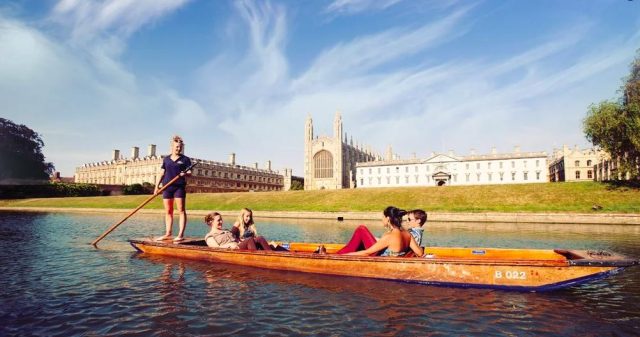
Scudamore’s Punting Company
Founded in the early 20th Century, Scudamore's are Cambridge's original punting company.
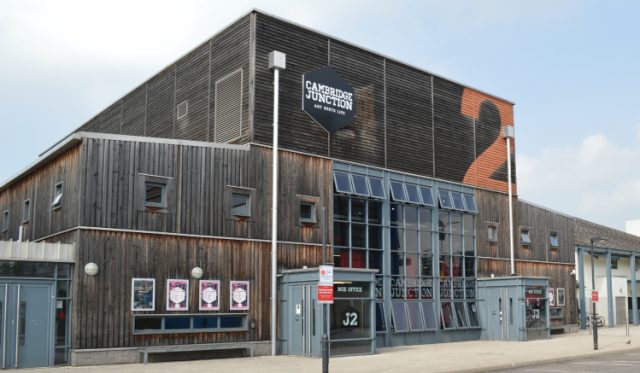
Cambridge Junction
The venue in Cambridge where art meets life.
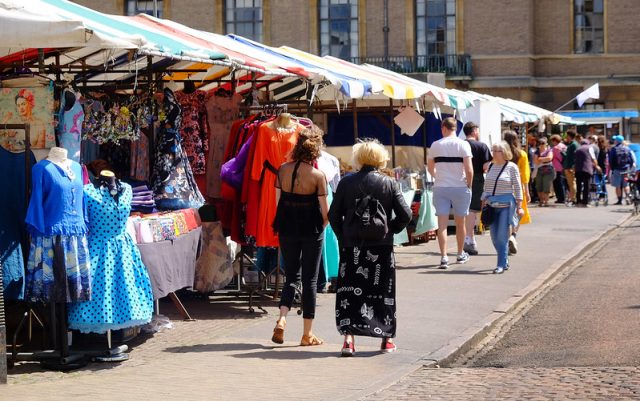
Cambridge Market Square
Outdoor market showcasing gourmet food stalls, plus Cambridge University clothing & souvenirs.
List your business or event
Visit Cambridge is the official Destination Management Organisation for the city of Cambridge and the surrounding area. We promote our beautiful city and its attractions across the world, bringing over 7.6 million visitors to the area annually worth over £2 billion, a figure which is growing by 3.5% every year. We would love to promote your local event or business on our website.
WHY YOU SHOULD LIST
Featured articles.
Be inspired by a City of History, Culture and world-changing Discoveries. Home to more Nobel Prize winners than any other city, Cambridge is brimming with learning, culture and discoveries.
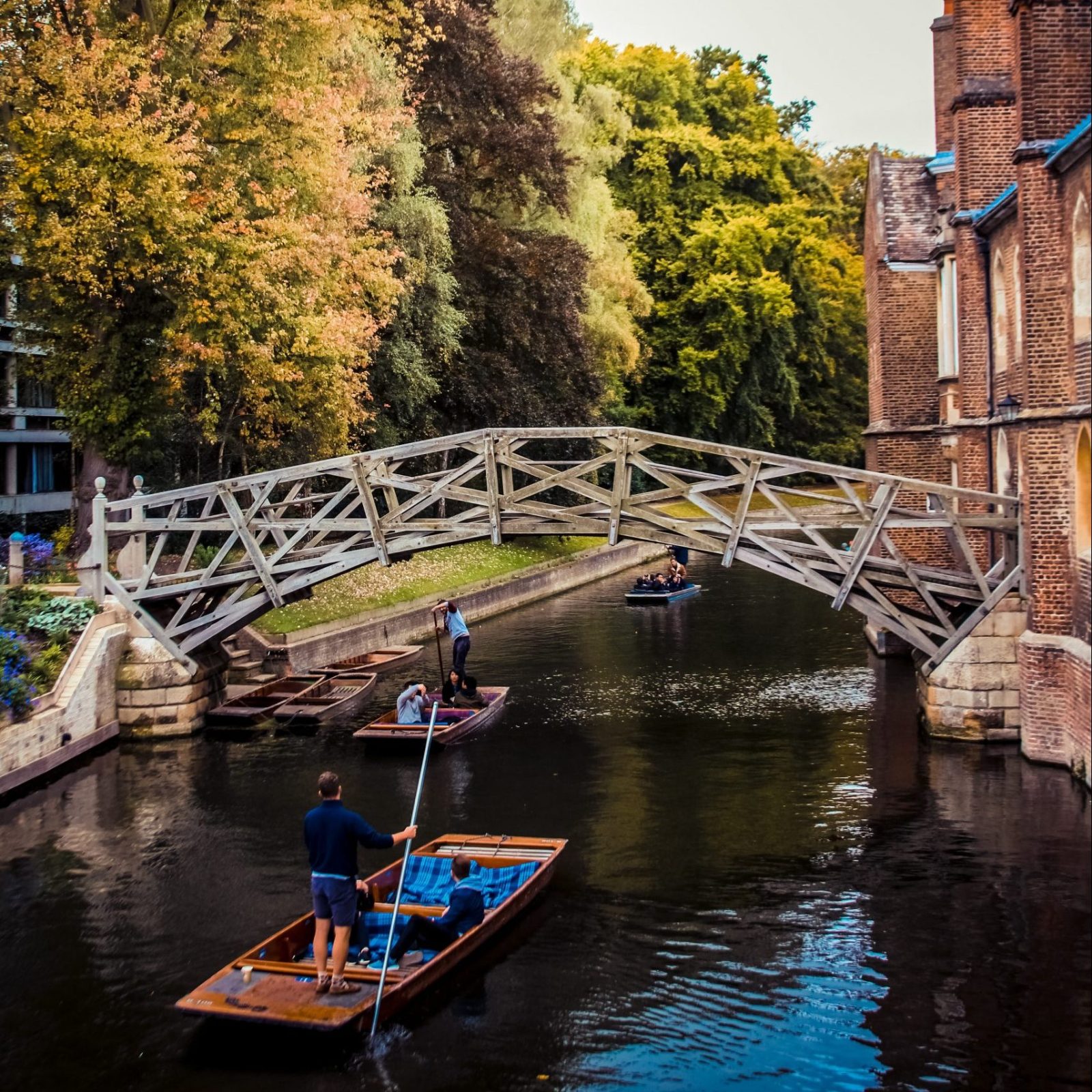
Guide to Shopping in Cambridge

Five Fantastic Spring Activities To Enjoy In Cambridge

Cycling Routes
Cambridge, known for its flat terrain and bike-friendly infrastructure, offers an ideal setting for cycling enthusiasts. Here's a quick overview of visiting cycling routes in and around Cambridge. Remember to check the condition of your chosen route, especially if you're venturing into rural areas. With its cycling-friendly atmosphere and a variety of scenic routes, Cambridge is a fantastic destination for both casual and avid cyclists.

Film and TV Locations
Cambridge, with its historic charm and picturesque surroundings, has served as a backdrop for various film and TV productions over the years. While not as extensively filmed as some other cities, Cambridge boasts several notable locations that have featured in popular movies and television shows. Here's an overview of some famous film and TV locations in Cambridge.
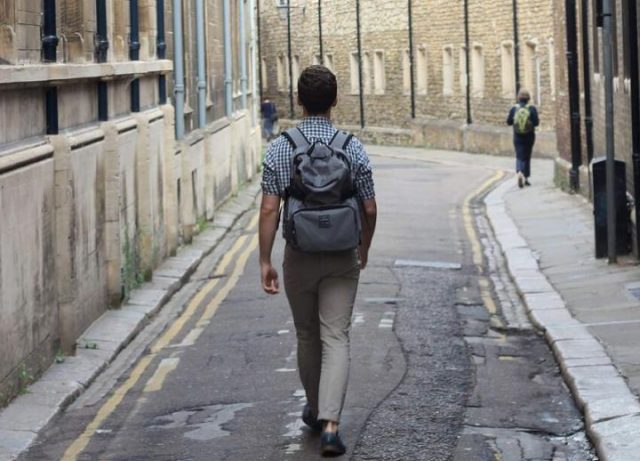
History and Architecture
Cambridge is renowned for its rich history and stunning architecture, primarily shaped by the world-famous University of Cambridge. Here's a quick overview of visiting historical and architectural landmarks in Cambridge. Remember to check the opening hours and any admission requirements for specific sites. Cambridge's history and architecture offer a captivating journey through centuries of academic and cultural excellence.

Whether you're looking for casual street food, fine dining, or a cozy café atmosphere, Cambridge has a foodie spot to satisfy every palate. Explore the city's culinary delights and discover the diverse flavors it has to offer.

Rest and Relaxation Spots
Cambridge offers a variety of rest and relaxation spots for visitors to unwind and recharge amidst the city's historic charm. Here you can find a variety of these spots.
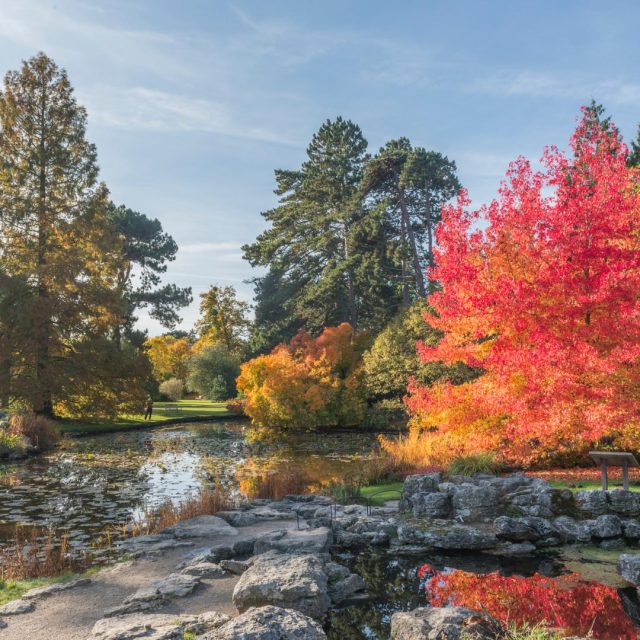
Cambridgeshire offers an abundance of beautiful gardens; from tranquil college courtyards to sprawling public parks, these green spaces offer respite from the bustling streets and provide a tranquil sanctuary for residents and visitors alike. Whether you're seeking a peaceful spot for contemplation, a picturesque backdrop for a leisurely stroll, or simply a place to connect with nature, Cambridgeshire gardens offer something for everyone.

Festivals & Concerts
Check out some of the great Festivals and Concerts that Cambridgeshire has to offer
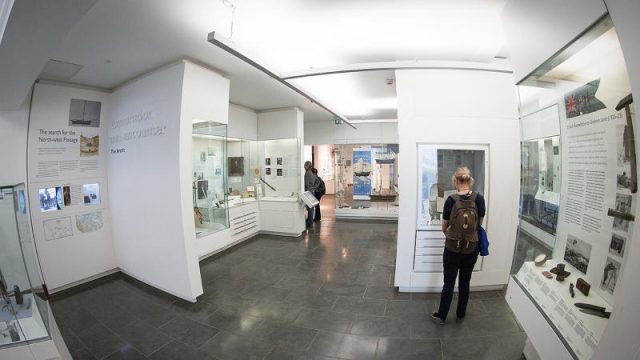
Cambridge on a Budget
Exploring Cambridge on a budget doesn't mean sacrificing its charm and allure. From historic landmarks to scenic parks, Cambridge offers a wealth of budget-friendly attractions and activities for visitors to enjoy.
Best cities in the UK as voted for by the readers of Condé Nast Traveller
"Cambridge Wins the Vote for the Condé Nast Traveller Best UK City Award 2022 with a Score of 85.78"
Quick links
See your city.
Use #visitcambridge for your chance to be featured on our feed

Did you know?
Not many pubs can claim to have served a man a pint just after he’d discovered the secret of life itself, but The Eagle can! It was in this city centre pub that scientists Francis Crick and James Watson announced their discovery of DNA in the 1953.

Study at Cambridge
About the university, research at cambridge.
- Undergraduate courses
- Events and open days
- Fees and finance
- Postgraduate courses
How to apply
- Postgraduate events
- Fees and funding
International students
- Continuing education
- Executive and professional education
- Courses in education
- How the University and Colleges work
- Term dates and calendars
- Visiting the University
- Annual reports
- Equality and diversity
- A global university
- Public engagement
- Give to Cambridge
- For Cambridge students
- For our researchers
- Business and enterprise
- Colleges & departments
- Email & phone search
- Museums & collections
- Undergraduate Study
- Student life overview
- Why Cambridge
- Accommodation
- Sport and societies
- Courses overview
- Choosing a course
- How you will learn
- Careers and graduate prospects
- Subject A-Z
- Colleges overview
- What is a College?
- Choosing a College
- College contacts
- Area links scheme
- Finance overview
- Tuition fees
- Living costs
- Financial support
- Music awards
- Applying overview
- Application timeline
Before you apply
After you apply.
- AI and undergraduate applications
- International overview
- Chat with our students
- Why Cambridge?
- What can I study?
- Entry requirements
- Tuition fees and costs
- International visits and events
- Visas and immigration
- Year abroad
- Get in touch!
- Open Days and Events overview
- Upcoming events
- Cambridge Open Days
- Virtual Tour
- Think Cambridge
- Applicant Webinar Series
- Subject Masterclasses
- Teachers and advisers' events
- HE fairs and exhibitions
- Find out more overview
- Sign up to our Newsletter
- Widening participation
Parents and supporters
Teachers and advisers
- Getting here
- Why Cambridge overview
- Study facilities and libraries
- Cambridge explained
- Support overview
- College welfare
Disabled students
Mature students
- Counselling
- Care leavers overview
- Travel Fund
- Young carers
- Student parents and childcare
- Estranged students
- Area links scheme overview
- East Midlands overview
- Leicester City
- Leicestershire
- Lincolnshire
- Northamptonshire
- Nottinghamshire
- East of England overview
- Bedfordshire
- Cambridgeshire
- Hertfordshire
- Peterborough
- Southend-on-Sea
- Greater London overview
- Barking and Dagenham
- City of London
- City of Westminster
- Hammersmith and Fulham
- Kensington and Chelsea
- Tower Hamlets
- Waltham Forest
- North East overview
- Middlesbrough
- North Tyneside
- Northumberland
- Redcar and Cleveland
- South Tyneside
- Stockton-on-Tees
- North West overview
- Blackburn with Darwen
- Telford and Wrekin
- Northern Ireland
- South East overview
- Bracknell Forest
- Milton Keynes
- Oxfordshire
- Southampton
- Isle of Wight
- Buckinghamshire
- West Berkshire
- South West overview
- Bath and North East Somerset
- Bournemouth
- Gloucestershire
- North Somerset
- South Gloucestershire
- Wales overview
- North Wales
- Mid and South Wales
- West Midlands overview
- Herefordshire
- Staffordshire
- Warwickshire
- Wolverhampton
- Worcestershire
- Yorkshire and Humber overview
- East Yorkshire
- Huddersfield and Kirklees
- Kingston-upon-Hull
- North East Lincolnshire
- North Lincolnshire
- North Yorkshire
- Isle of Man
- Living costs overview
- Study costs
- Financial support overview
- Cambridge financial support
- Government financial support
- Family contribution
- Outreach Scholarships overview
- Stormzy Scholarship
- Formula 1 Scholarship
- Geography Scholarship
- Clare College Area Links Scholarships
- Student Funding and Sharia Law
- Music awards overview
- Choral awards overview
- Instrumental awards overview
- Organ scholarships overview
- College vacancies and course restrictions
- When are the auditions and interviews?
- What do the Organ Trials involve?
- How do I apply?
- Further information
- Choosing high school subjects
- Improve your application
- Entry requirements overview
- Qualifications we accept
- Sixth Term Exam (STEP)
- International entry requirements
- Application statistics
- Mature student applications
- Second undergraduate degrees
- UCAS application
- Admission tests overview
- Clinical aptitude test (UCAT)
- Law test (LNAT)
- Engineering and Science test (ESAT)
- Mathematics test (TMUA)
- College admission assessments
- My Cambridge Application overview
- Providing a transcript
- Disruption to your studies
- Written work and portfolios
- Cambridge interviews overview
- Prepare for an interview
- Application decisions overview
- Admissions Policy
- Unspent criminal convictions
- Contextual data
- Outcome of your application overview
- Terms of Admission
- Admissions complaints
- After you get your exam results overview
- Information for new students
- Applying for reconsideration overview
- Reconsideration eligibility criteria
- Tuition fees and costs overview
- International financial support
- International visits and events overview
- Cambridge Open Days overview
- Warm-up webinars
- Teachers and advisers' events overview
- Teachers and Advisers' Webinars
- Teachers and Advisers' Conference
- Widening participation overview
- Access and Participation Plans
- Sutton Trust Summer Schools
- Apply: Cambridge
- Safeguarding
- Parents and supporters overview
- Parents' Newsletter
- Teachers and advisers overview
- How similar are Oxford and Cambridge?
- Helping students prepare
- School/college reference
- Teachers' Newsletter
- Events for Teachers and Advisers
- Inspiring Educator Awards
Applying to Cambridge
- Student life
- International
- Open Days and Events
- Find out more
Applying as a mature student? Visit our Mature student applications page to find out more.
We‘re excited you’re thinking of studying an undergraduate degree at Cambridge. Join us to experience world-class teaching and learning at one of the best universities.
Are you starting to explore your university options? You can:
- Take a look at undergraduate courses at Cambridge . We have 31 exciting degrees and a Foundation Year for you to choose from.
- Find out more about our entry requirements . We accept a wide range of qualifications from all over the world.
- Check tuition fees and course fees and work out your living costs .
- Learn about admission assessments that you need to take . These are tests that you need to do as part of your application. You’ll need to register in advance for some tests.
- Explore our Colleges . We have many options for you to choose from. Your College is where you’ll live and have your supervisions, which are group teaching sessions. You can choose a College when you apply for a course or make an open application.
- Visit us on an open day or join one of our events to discover Cambridge for yourself.
- Get help to choose your high school or sixth form subjects and combinations , such as A level or IB, if you haven’t picked them already.
- Take a look at our application statistics .
- Get tips and suggestions for things you can do to improve your university application so you can stand out from the crowd.
Ready to apply? It’s time to:
- Register and prepare for your admissions assessment , if needed for your course.
- Read our tips to complete your UCAS application and write a great personal statement .
- Prepare to complete My Cambridge Application . This is an extra form that you need to fill in once you’ve submitted the UCAS application. Don’t worry, we’ve put together guidance to help you.
- Let us know if your studies have been disrupted .
Once you submit your UCAS application and My Cambridge Application , you can:
- Check if you need to submit any written work or a portfolio and how to send it to us .
- Find out what happens during your interview and how to prepare for your interview . See what kind of questions we might ask, and what we expect from you.
- Prepare for your written College admission assessment , if needed for your course. Check what you need to do and have a go at some sample papers.
- Check what you need to do when you get your application decision from Cambridge . You can also read about how we decide who gets a place .
- Learn what happens if you’ve been invited to submit your application for reconsideration , how the process works, what you need to do and when you’ll find out if you got a place.
- When you get your exam results, check what to do next .
External consultants
We’re aware of private companies and individuals who offer, at a charge, information and advice on our admissions process, assessments and interviews. We DO NOT support or encourage any of these commercial enterprises. None of these companies/individuals has access to any information that’s not already available free of charge to all schools, colleges and individual students from College admissions offices, Student Admissions and Access or Cambridge Students’ Union; and we’re unable to verify the accuracy of information these companies/individuals may provide. Please contact the admissions office at any College or Student Admissions and Access for more information.
Related Links
- Admissions policy
- Extenuating circumstances
- Mature applications
- International applications
- Disabled student applications
- Care leaver applications
- Applying from Wales
- Applying from Scotland
Cambridge Admissions Office
- Cambridge Admissions Office Student Services Centre New Museums Site Cambridge CB2 3PT
- Events: [email protected]
- General admissions: [email protected]
- Students chat
About this site
Our website
Privacy policy
Participant data and booking policies
Information for
Care leavers and estranged students
© 2024 University of Cambridge
- Contact the University
- Accessibility
- Freedom of information
- Privacy policy and cookies
- Statement on Modern Slavery
- Terms and conditions
- University A-Z
- Undergraduate
- Postgraduate
- Research news
- About research at Cambridge
- Spotlight on...

IMAGES
VIDEO
COMMENTS
Welcome to Cambridge, home to more than 20,000 students from all walks of life and all corners of the world. Cambridge is rich in cultural diversity. You will find beautiful University and College buildings, museums and art galleries, extensive gardens and punts on the River Cam. A unique city centre small enough to explore on foot, and just a ...
The first residential institute for women's higher education in England, Girton celebrates 100 years since getting its Royal Charter. Follow us on Instagram for more of Cambridge's people and places. The mission of the University of Cambridge is to contribute to society through education, learning and research at the highest international level.
A virtual tour experience for the University of Cambridge. If you require assistance, please email [email protected]
Learn how to visit the University of Cambridge's sites, which include 31 Colleges, six Schools and over 150 Faculties and Departments. Find out more about the University's history, mission, values and global activities.
The University of Cambridge is a collegiate research university in Cambridge, 50 miles from London . Founded around 1209 . Cambridge is the second-oldest university (in this English-speaking world). The campus is huge & Alumni organize a guided walking tour & also boating tour .
The University holds a student sponsor licence which allows it to sponsor eligible students for a student visa. For visa sponsorship, the visit to Cambridge must be for the purpose of study or research that is part of your overseas qualification. This qualification must be at the same level as, or above, a UK degree.
The University of Cambridge is a public collegiate research university in Cambridge, England.Founded in 1209, the University of Cambridge is the world's third-oldest university in continuous operation.The university's founding followed the arrival of scholars who left the University of Oxford for Cambridge after a dispute with local townspeople. [11] [12] The two ancient English universities ...
Give me more information. Personalisation settings. - these cookies allow you to tailor your experience. Social marketing preferences. - these cookies do things like measure how you view media content on our website using third-party services and websites. Save my choices. Research at Cambridge.
Cambridge University Botanic Garden The Botanic Garden is a treasure trove of over 8,000 plant species, including nine National Collections and a wonderful arboretum. Today: 10:00am - 6:00pm
Of the old colleges, there are a few you must visit. Kings College is the poster-child for Cambridge University: it's breathtaking chapel features in every other postcard of the city. The building was first commissioned by Henry VI in 1441, and became the standard-bearer for grand Gothic architecture. There is no other building like it in the ...
from. $909.47. Cambridge Day Trip from London with a Local: Private & Personalized. 1. Cambridge is one of England's most storied university cities—and on this private, full-day tour, you'll see its top highlights. With round-trip train tickets included in the cost, getting there from London is fast and hassle-free.
Cambridge University Guided Walking Tour with a Graduate - Get an insight into life at one of the world's most elite universities on a 1.5-hour historical walking tour of Cambridge University with a graduate guide. Visit some of the most famous colleges, such as Clare College and Trinity College.
Join us as we go exploring Cambridge, England - home of the University of Cambridge. Our Cambridge city tour will take us past some of the most impressive of...
The University of Cambridge sits at the heart of one of the world's largest technology clusters. The Cambridge cluster is home to 5,300 knowledge-intensive companies. It is the birthplace of 23 businesses valued at more than $1 billion (£800 million). Cambridge promotes the interface between academia and business, and has a global reputation ...
1. Visit the colleges. Founded in 1209, Cambridge University is an architectural marvel made up of 31 colleges. The school's Kings and Queens Colleges have the most beautiful buildings, while Corpus Christi, St. Johns, and Trinity have iconic, stunning quads.
Applications for September 2024 are now closed. Graduate Entry Medicine Open Events - 2nd October 2024. This event is for students who are looking to apply by the UCAS (Medicine and Dentistry) application deadline of 16 th October 2024 to study Graduate Entry Medicine MBChB from September 2025. At this event you will have the opportunity to hear an overview of the course, where you will be ...
In addition, buses regularly run from Stansted, Luton, Heathrow and Gatwick airports to the city centre. Cambridge is a small and busy city in the East of England, in the UK. It wasn't built with modern traffic flows in mind, so it's best to visit the centre - where many of the University buildings and Colleges are situated - on foot.
a Cambridge email account; access to shared computing and workspace facilities in HPS and throughout the University; access to the Department's Whipple Library and the main University Library; the right to attend research seminars and lectures throughout the University. Visiting Scholars. To be eligible to become a Visiting Scholar you must:
Cambridge Open Days. Every July and September, the whole University and its Colleges open their doors to give prospective applicants an insight into what it's like to study and live here. Find out more. Take a Virtual Tour. Explore the University of Cambridge virtually via 360° photos, videos and articles from all the Colleges and departments.
Some visiting students may be required to apply formally for admission via the Applicant Portal. This applies to students who: Students who fall into one of the categories above will be liable to pay the University Composition fee - equivalent to the PhD fee in that department. You may be able to come to Cambridge as a visiting student if you ...
The University's news digest summarises news and features from across the University of Cambridge into one weekly email. Enter your email address, confirm you are happy to receive our emails and then select 'Subscribe'. I wish to receive the University's news digest by email. The University of ...
List your business or event. Visit Cambridge is the official Destination Management Organisation for the city of Cambridge and the surrounding area. We promote our beautiful city and its attractions across the world, bringing over 7.6 million visitors to the area annually worth over £2 billion, a figure which is growing by 3.5% every year.
Math Teacher On-Campus or Off-Campus Oxford is considering two types of candidates (residential or day faculty) for this one opening and looking to hire the best overall candidate for our students and community.
Cambridge Open Days. Join us at an Undergraduate Open Day to discover what Cambridge is really like. Our 2025 undergraduate Open Days will take place on Thursday 10 July and Friday 11 July 2025, with a smaller, College focussed Open Day on Friday 12 September 2025.. Cambridge Open Days are aimed at prospective applicants from Year 12 (or equivalent) and mature applicants (aged 21 or over ...
You can choose a College when you apply for a course or make an open application. Visit us on an open day or join one of our events to discover Cambridge for yourself. Get help to choose your high school or sixth form subjects and combinations, such as A level or IB, if you haven't picked them already. Take a look at our application statistics.